The complete guide for Internship Seekers

CAREER GUIDE 2024
MCI (P) 014/09/2023
INTERNSHIP RESUME


































solving di cult problems for the nation Join us and make a di erence


Adulting doesn’t mean giving up on your favourite cereal.


Pick up fresh grad career advice from us, right from your breakfast table.












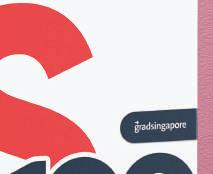
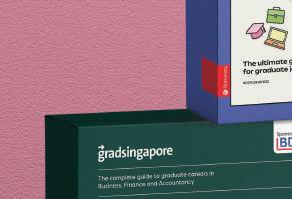
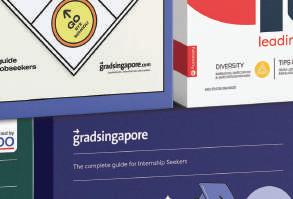






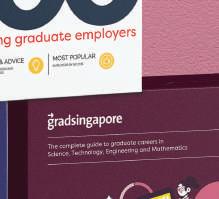









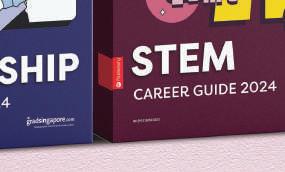








Create your free account now at


Internship Guide 2024 Contents 2 Getting Started Aiming for an Internship Applying for Internships 4 9 25 The Perks of Doing an Internship 10 How to Get an Internship 12 Where Else Can I Find An Internship? 14 Choosing the Right Internship 16 Doing an Internship Outside Your Field of Study 18 To Be or Not to Be a Graduate Intern? 20 Juggling Your Internships and Studies: What to Know 22 Your Internship Resume 26 Writing a Cover Letter for Your Internship 28 Perfecting Your Pitch 30 The Art of the Speculative Application 32 Tackling Online Applications 34 Email with Elegance 36 Managing Your LinkedIn Profile as an Intern 38 A Quick Checklist 40 Getting Started: A Word of Advice 4 Get a Taste of the Working World 5 Actions Over Your Years 6 How to Use This Guide 8
to intern as a fresh grad?
out page 20 for its pros and cons!
to
44 to
Looking
Check
CONTENTS Turn
page
check out some common internship interview questions.
How can you survive your first day as an intern? Flip to page 54 to find out!
Page 60 introduces you to a variety of career sectors to explore.
Internship Guide 2024 Contents 3 Acing Your Internship Industry Sectors Employer Listings 41 60 71 Accounting and Financial Management ........................ 61 Arts and Design ............................................................. 61 Banking and Financial Services ...................................... 62 Charities and Social Services 62 Construction 63 Consulting 63 Education 64 Engineering, Design and Manufacturing 64 Fast-Moving Consumer Goods 65 Healthcare and Pharmaceuticals 65 Hospitality, Leisure and Tourism 66 Investment Banking and Investment Management 66 IT and Technology 67 Law 67 Media and Advertising 68 Property and Real Estate 68 Public Sector 69 Sales and Marketing 69 Scientific Research and Development 70 Uniformed Services 70 Before the Big Day 42 Common Internship Interview Questions 44 Body Language Tips for Interviews 46 How to Ace Your Internship Interview 48 Post-Interview: Steps to Take ........................................ 50 Bouncing Back from Rejection....................................... 52 Surviving Your First Day as an Intern ............................. 54 Becoming a Star Intern .................................................. 56 Wrapping Up Your Internship ........................................ 58
Getting Started: A Word of Advice
If you want to start building your resume while you’re still in school, taking up an internship may be just what you need.
The days of a guaranteed job upon your graduation from polytechnic or even university are long over. With competition in the job market continuing to heat up, being able to expand your skills and knowledge beyond the classroom can make you a strong candidate and in turn greatly increase your employability after graduation.
For this, internships are often what comes to mind, which consists of spending a few weeks to several months working for a company. However, internship spots can be highly contested over, especially if they’re offered by larger, multinational companies. However, while there are perks to taking one there, don’t discount smaller firms either – while not as well-known, they have their own sets of benefits that you can take advantage of.
In addition, there’s also other options to consider, from taking up relevant part-time jobs (such as in retail if you’re eyeing the fashion industry), starting up personal projects (like programming games) or even taking part in competitions or volunteering if you think the skills you want can’t be found in an internship.
Ultimately, what you’re after is experience, as well as skills, and whether you’re looking to intern or do something else entirely, it’s all up to you. But remember, gradsingapore will always be in your corner to cheer you on, and we’ll keep supporting you with all the resources and advice you’ll need to get a good start on your career journey!
The Team
Did you know up to 70 per cent of openings are not advertised? Turn to page 32 to find out how to apply for them!
Find out how to ace an interview on page 48
Explore some sector possibilities from page 60 onwards.
Turn to page 71 to see some available internships.
Internship Guide 2024 Getting Started 4
Get a Taste of the Working World
Looking to gain some work experience while studying? Here are some options you can consider.
recruitment fairs
Attend as many career fairs, recruitment events and networking sessions as you can to learn how to market yourself. Talk to and network with as many employers as possible to find out which roles and companies suit you best. While you’re there, take advantage of the many presentations, talks and workshops available to develop yourself too!
Career and Internships Placements
Whether business-related or focused, dealing with healthy competitions can develop your perseverance and resilience. Additionally, competitions also develop your ability to work and capacity to thrive under pressure, all while having you learn to deal with new environments and situations.
Some employers offer short programmes to students in their first and second years to introduce them to their companies and operations. This is a great time to learn about an employer and test its suitability for you, as well as see different sectors in a new light.
Personal projects
Whether it’s repairing old computers or running a writing blog, having personal projects are not only a good way to showcase your skills, but also display your initiative and creativity. After all, being a self-starter with drive and ambition are traits employers are always on the lookout for!
One of the most popular options, with many employers, both big and small, offering students paid programmes that can last between 10 weeks to several months. They can either be done over the holidays or offered at various times of the year.
Extracurricular Open days
Shadowing Competitions
activities
You can build your resume even as you engage in something you’re passionate about. Whether it’s university clubs, societies or sports, these can hone your skills in communication and leadership (and potentially much more) as well as provide other benefits like long-lasting connections!
Gap years
If you can, consider taking up a gap year to either travel or work. Not only is it a great opportunity to gain new experiences, but it can help you develop your resilience, as well as teach you how to adapt to different environments and cultures.
Some employers open days for students to help them get to know their work culture and operations. Occasionally, these can include talks and workshops.
Your course may require you to take a year-long placement in an industry. Usually found in vocational courses, such as logistics, they’re typically undertaken in the third year.
Apply speculatively and a company may allow you to find out more about a job up close and personal by shadowing a professional for a period of time.
Part-time jobs
Part-time or casual jobs allow you to pick up valuable transferable skills, such as communication and teamwork. Moreover, if it happens to align with the career path you’re after, these jobs can also be used as leverage to show off your suitability for a related position upon graduation!
Volunteering
Enjoy a sense of fulfilment from helping others as you also build your transferable skills. If you’re looking to enter the public sector or the charitable sector, this is the perfect route for you.
Insight programmes
Internship Guide 2024 Getting Started 5
Actions Over Your Years
Students generally take up internships during their freshman and penultimate years. Read on for a general guide that you can use over your time in university to take up internships, part-time jobs and additional projects.
Freshman year
Term 1
• Take advantage of what your university has to offer. Join clubs or societies you’re interested in and build up your portfolio. If there’s any upcoming competitions you’re interested in, do your research and check if you’re eligible to join.
• Locate your university’s career centre, and find out what services they offer. Most centres also have an alumni network that can be of great help to you, so ask about that as well.
• Start exploring different career sectors that interest you, whether it’s law, engineering or media. Once you’ve decided, start looking out for open days, insight programmes, career fairs and networking sessions related to your choices.
• Do your own research on short programmes offered by employers to first years.
• Got a pet project in mind? Now’s a good time to start –just be sure to maintain and complete it over your time at university.
• Create an account on a professional social media platform of your choice, such as LinkedIn.
• Consider getting a part-time job over the upcoming holiday, or volunteer at a charity or association for experience.

Term 2
• Keep developing your networking and communication skills.
• Continue making the most of your professional social media platforms.
• Whether it’s volunteer work, an insight programme or a part-time job, keep track of your experiences and the lessons you’ve learnt from them. If you’re asked to return for an internship interview the year after, employers will want to know what you picked up from them over the time you were there.
• Document the challenges you overcame in your volunteer work or part-time job. You can use it for future applications for internships or graduate jobs.
• List out the sectors you’re interested in (on page 60), as well as employers you like. This will help you narrow your scope of applications later when internship-hunting, as well as help you better customise them for each employer.
• If travelling permits, consider international volunteering opportunities.
Internship Guide 2024 Getting Started 6
Penultimate year
Term 1
• If you’re eyeing that internship with a popular graduate employer, start applying early in the term.
• Find out about upcoming internship fairs organised by your university and other event organisers.
• If you don’t mind juggling both an internship and your schoolwork at the same time, consider keeping a lookout for rolling internships.
• Invited for an internship interview? Be sure to brush up on your techniques (on page 48).
• If you’ve been accepted for an internship with a company you want to join after graduation, treat it as an opportunity to get your foot into the door and stand out (tips can be found on page 56). Take the time to get to know your work and employer as you figure out your career interests.
• If you were rejected for an internship you wanted (page 52 will help you bounce back), turn to your contingency plan and apply speculatively (turn to page 32 for help). Meanwhile, consider doing an internship with a smaller employer, or volunteer at a charity or non-governmental organisation (NGO). Consider shadowing a professional in a company for a day or more if possible.

Term 2
• Keep an eye out for rolling internships if you didn’t get one over the holidays. Some internships may only be offered later in the year.
• If you have no internships coming up later in the year and you didn’t complete one over the holidays, go over your options with your university career centre and come up with a plan to take advantage of opportunities in university or work experience you already have. If possible, try to arrange a period to shadow a professional.
• Take a closer look at what you have lined up. You’ll be starting your final year soon and companies will start opening their applications for graduate schemes.
• If you’re going into your final year and feel you’ve missed all your chances, there’s no need to worry! Make the most of your university career centre’s resources and explore the possibility of graduate internships.
• If you’re planning to take a gap year after your graduation, plan in advance how you want to present your experiences to prospective employers when you return.
Internship Guide 2024 Getting Started 7
How to Use This Guide
If you want to have a taste of the working world before graduation, or wish to try out a particular industry or company after you graduate, internships are a good choice for you. Here’s a preview of what this guide contains.

There’s plenty of benefits to taking up internships, whether while studying or even after graduation. This section tackles why you should take one, where you can find opportunities and how to find the right one for yourself.
What’s the next step after a potential employer calls and invites you to an interview? What new challenges will present themselves during your interview? When you land an internship, what do you do next? Read this section to find out.
Want an internship, but don’t know where to start? This section covers all you need to know about the recruitment process. From the documents to submit (such as resumes and cover letters) to utilising LinkedIn to the fullest, learn how to present yourself to prospective employers as the intern they’re looking for!
It’s important to have an idea of the different industry sectors out there. By looking into their backgrounds, you’ll be able to get a sense of which fields are the most suitable for your skill sets, personality and career goals.
Aiming for an internship Acing the internship interview Applying for internships Industry sectors 01 02 03 04 Internship Guide 2024 Getting Started 8

Aiming for an Internship
While internships are a great way to gain relevant knowledge, experience and skills, they also allow you to dip your feet in the pool and discover whether the field is truly something you can see yourself working in.
Internship Guide 2024 9
The Perks of Taking Internships
“Looking for a fresh graduate with one to two years’ work experience” – does this line from a job posting look familiar? This is where having an internship would help you!
During the hiring process, employers look for evidence that a candidate is able to deliver, and work experience is often the best demonstrator of your skills and suitability for the job.
With that in mind, undertaking internships and work placements are an ideal way for full-time students to gain relevant work experience, so start early and plan ahead to gain the right range of skills to help you meet your career goals!
There’s also plenty of other reasons to undertake an internship, too. Here are some things you’ll get out of it:
To gain relevant skills To better understand yourself
An internship helps you develop the skills necessary for the workplace, including crucial and transferable skills that can’t be learned from books, but picked up through real-life exposure and experience. For example, you can develop...
Communication skills
• From interacting with co-workers and clients alike
Organisational and time management skills
• By managing tasks to meet deadlines
Teamwork skills
• From experience working with team members
Hence, it’s important that you view all experiences within the workplace as a means of practice for your future job. You should also consider the type of skills and experiences you wish to gain and seek out related opportunities during your internship. Setting your objectives before you start your internship will help you make the most of your time there.
While they’re undoubtedly a great way to gain relevant knowledge, experience and skills, internships also allow you to dip your feet in the pool and find out if a particular position or industry is something you can see yourself working in. The experience can provide you with an insider’s point-of-view, on top of a better understanding of the different roles and tasks within the industry.
Moreover, an internship will give you a more realistic idea on how the knowledge and technical skills learnt in school can be applied in a work environment. It’s also a good way for you to gauge your abilities and working style, as well as what you can improve on.
Internship Guide 2024 Aiming for an Internship 10
To get your foot in the door
An internship presents the opportunity to get your foot in the door of the company and industry you want to work in. If you perform well, you may even be asked to stay on or return as a full-time hire after graduation!
In fact, it’s not uncommon for employers to convert interns to permanent staff members, as it saves them the hassle of familiarising new hires with the organisation’s work environment and culture, as well as the trouble of figuring out whether they’re a good fit for the company.
However, a conversion from an internship to a full-time position isn’t guaranteed. You’ll have to stand out from your fellow interns and go beyond your regular duties to impress your employers.

To broaden your network
There’s no better time to start developing your professional network than during your internship. As an intern, you’ll have the chance to build relationships with people in the company and industry, which can not only help you now, but can benefit you in the long run as well.
For instance, you may be invited to join company or industry events. So make the effort to socialise and put the best version of yourself forward! The people you meet and interact with during such events can become career mentors or even references when you start looking for a graduate job in the future.
Internship Guide 2024 Aiming for an Internship 11
How to Get an Internship
Don’t know where to start? Here are some tips on how you can begin looking for available internship opportunities.
With the job market as competitive as it is, internships have long been established as a popular avenue for students and graduates to get the work experience and skills needed for that extra edge in their applications.
Although finding (and landing) your dream internship can be stressful and competitive, preparing early is always a smart move.
Here are some ways to make the process easier for yourself!

Before starting the search
Identify your goals and interests
Before you even start looking, you need to have a clear idea of what you want out of it. So instead of applying just to meet your course’s requirements, think about the long-term and look for a position that’s relevant to the industry you want to work in. Additionally, consider particular areas within the field that you’d like to focus on.
For example, a mechanical engineering student interested in pursuing a career in the fast-moving consumer goods (FMCG) industry can consider looking for an internship in a cosmetic company’s manufacturing department. By having a clear understanding of your interests and aspirations, you can narrow down your search and hone in on the perfect role that’ll meet your needs.
Prepare your resume
Along with an application, you’ll also need a resume. But being a student, you probably don’t have much to work with when it comes to experience to list down on it. Don’t worry – that’s expected!
Instead, you can include some modules or areas of study that make up your current qualifications. However, don’t just list down every module you’ve taken, as it won’t say much about you. Instead, come up with a carefully curated list of subjects or modules that you excel in and are relevant to the role.
Internship Guide 2024 Aiming for an Internship 12
Starting the search
Visit your campus career centre
If you haven’t booked an appointment with your campus’s careers services centre, now’s the time to do so. When it comes to looking for internships and career advice, there are few people better placed to provide assistance than the experts you’ll find there.
Because careers advisors on campus can tell you what internships and placements are on offer, as well as how they operate, take the time to book a consultation session to start prepping and planning ahead for your internship and career.
Network
Having a strong network can not only help with your internship search, but also graduate jobs and opportunities in future.
With that in mind, participate in networking events in school, whether they’re organised by the career centre or by clubs and societies. Through these events, you might have the chance to not only learn more about companies you’re interested in, but also whether they have internships or placement opportunities available.
You should also establish connections with seniors and alumni who’ve gone on to work in fields relevant to your areas of interest. If you’re unsure about how to start, you can join networking events that include alumni from your school, or even search for them online on platforms like LinkedIn.
Alternatively, you can also attend career fairs to meet recruiters face-to-face, and take the chance to get to know potential employers and vice versa. It’s a good way to make a positive impression, and may even lead to employment opportunities in the future.
However, keep in mind that networking doesn’t immediately guarantee a placement! Follow up with the contacts you’ve made by dropping them well-crafted emails to ask if they can connect you with any opportunities.
Apply speculatively
You may not realise it, but not all internships and opportunities are advertised – many smaller or local employers may not have the budget to post internship openings on job portals.
That said, you won’t actually know if these employers are looking for interns unless you submit a speculative application.
If you already have your eyes fixed on a specific industry, create a list of employers there that interest you. Search engines and LinkedIn are your best bet to getting the information you need in this process.
Once you have a shortlist of employers, send them your cover letter and resume over email, or drop off your application in person. Don’t be afraid to give them a call if you don’t hear from them a week or so after submitting your application too.
Remember – following up is imperative!
“There is no substitute really for learning about the world of work and being in the world of work.”
Internship Guide 2024 Aiming for an Internship 13
Where Else Can I Find an Internship?
There’s also other unconventional ways to get one on top of the usual beaten path.

Internship Guide 2024 Aiming for an Internship 14
In most cases, when looking for an internship, the first step is to check if there’s any listings online. But it’s far from the only method you can take, and in fact, employing a variety of strategies can do wonders for you to find your dream internship. Here are some other ways you can look out for internships.
Networking events
Apart from the usual bonus of meeting new people, grab the chance to meet others who are already in your chosen field. Be sure to mingle with those your age – penultimate and final-year students in universities – as well as individuals in key positions such as managers, directors, or even chief executive officers (CEOs).
Make an effort to talk to these figures, who’re either trying to enter the workforce with you or have been there for some time, and gain fresh perspectives from various sides of the job market and new knowledge about the sector, ranging from employer expectations to employee outlook in a particular field.
On occasion, even as you form your own circle of acquaintances through these events, offers may be made for internship positions in a desired company. Never underestimate the power of these networking events, so take the initiative to approach others and engage them in conversations.
Word-of-mouth
“Do you know of any available internship positions?” may be a familiar question if you have friends who ask around your social circle. Friends typically pass messages on to their own friends, and some of them may already be in your field of choice. As the question spreads to an ever-larger number of people, the chances that they’ll know of companies with available openings will be higher as well.
Don’t feel embarrassed to ask people to help you look out for an internship, and if someone’s willing to offer one you’re interested in, proceed with the application procedure. But don’t feel obliged to apply for a position that was recommended just because the person in question is a close family friend or relative.
Send in a speculative application
It sounds a little bold, but you can consider sending in a speculative application to companies you’re interested in about whether they’re accepting interns, even if they don’t have public listings. However, there are some extra steps you’ll need to take first.
For one, do some thorough research on the employers you’re after. Afterwards, use LinkedIn to reach out to department heads or managers working there, and inquire about whether they have any internship opportunities available.
Because you’re the one approaching them first, it’s recommended to provide a cover letter alongside your resume to state your intentions. Write around the company and their needs, and link your strengths to their requirements. Familiarise yourself with the right procedures to show your seriousness about securing the internship.
The process of obtaining an internship requires time and effort from you, so don’t disregard these important pointers to help you land one that suits you!
Internship Guide 2024 Aiming for an Internship 15
Conclusion
Choosing the Right Internship
Your coursework internship is a crucial stepping stone for your future career. Here are some tips you can use to decide on the right company to complete your internship with.

Near the end of your degree or diploma, you’re often required to complete a professional internship that counts towards your course’s credits. Considering that you’ll be spending 10 weeks or up to half a year working with a company, make the best use of your time there and gain the most out of your internship by finding the right placement for yourself!
Internship Guide 2024 Aiming for an Internship 16
There’s nothing like getting first-hand information from professionals already in the industry you’re interested in. It doesn’t matter if they’re from your personal network or someone you met while exploring potential career pathways; speaking to anyone with some experience, or experts in their fields will be useful for you. Find
You’ll want an internship that benefits your career path, and thus one that lets you pick up and apply the skills you’re after. Identify the key skill sets or areas of interest you want to develop, then choose a company that’s strong in those areas. Once you’ve landed the internship, make a conscious effort to improve your skills over the course of its duration. Keep track of your progress, so that by the end, you can see where you are in terms of mastering these skills.
Seek advice from your seniors
If you’re looking for advice regarding internships, asking your seniors is your best bet. Not only can they recommend companies suitable for your interests, but they can also offer insights on the firms they interned at. After all, what better way to know what your intern experience will be like at a certain company than to ask someone who did before you?
Apply to multiple companies
Being rejected or getting no response is a common occurrence when applying for internships. But don’t feel disheartened –keep in mind that there are many student candidates applying at the same time, and firms have limited internship openings.
The key is to apply to as many companies as possible and state your interest in doing an internship with them. Read up on relevant companies and organise your shortlist during the initial application process so that you can keep track of the applications you’ve sent out.
Your research will come in handy later when you need to attend an interview, so be sure to understand the company’s operations and prepare yourself for possible interview questions!
Attend career fairs
If you want to check out a wide range of employers, attend as many career fairs as possible. There, you’ll get to talk with as many employers as you wish regarding internship positions, even as you scout for opportunities.
Ask recruiters as many questions as you can about their company, and don’t forget to always bring copies of your resume to give to them too! Update your resume constantly and send soft copies on top of the hard copies given to the recruiters you met.
It’s never too late to start planning where you wish to do your internship, be it locally or abroad, if you have an opening and are willing to travel in this climate. It could be your best chance to get your foot into a dream company or an area of work you’re passionate about – so give it some thought, and then act on it!
Internship Guide 2024 Aiming for an Internship 17
grow
a company that will help you
Talk to people in the industry
Doing an Internship Outside Your Field of Study
It’s possible to pursue an internship outside your field of study, especially if you want to venture into a different industry. Here are three ways in which such an experience can help you in your career.
Experiment with your interests and passion
It’s normal to lose interest in what you’re studying and decide to change direction midway. Because of this, internships are good platforms to experiment with what you really want to do after your studies. You can also figure out whether the role is something you really want to do full-time.
That said, learn as much as you can from your placement by picking up new skills, both hard and soft, that’ll enrich you. For example, if you have a passion for health and fitness, then interning at a gym or wellness centre will give you experience in interacting with clients and help you realise if you gain job satisfaction from improving your clients’ health and fitness.
Internship Guide 2024 Aiming for an Internship 18

Acquire new skills
Such internships will increase your knowledge and enhance your skill sets beyond your course of study. Although learning something new is always hard, persevere and make good use of the opportunity during your internship; it’ll not only form part of your resume and portfolio, it may even lead you to similar roles in the future. For instance, a museum internship experience may lead you to a curatorial role after graduation.
Feel free to plot the dots on your canvas by pursuing your varied interests!
Strengthen your resume
Boasting a list of core skill sets on your resume is ideal if you’re looking at developing a multi-faceted career.
Skills unique to you are often the edge you’ll have over other candidates. For example, having additional artistic or musical skills would be an advantage for a teaching position, as you can use these skills to stimulate students and add to their learning experience.
It’s wise to try a new field while on your internship in order to get a taste of the job scope. Moreover, it’ll help you decide if a certain profession really is your cup of tea. Keep searching for what’s meaningful for you, and look for meaning in everything you do!
Internship Guide 2024 Aiming for an Internship 19
To Be or Not to Be a Graduate Intern?
Before applying for that graduate internship, take some time to reflect on these pros and cons.
Congratulations – you’re finally done with school! Now with your game face on and your resume and portfolio equipped, now’s the best time to dive straight into the deep end of the professional pool. Or is it?
If you lack work experience, employers may be hesitant to hire an applicant that’s too new to the corporate world. It can also potentially hurt you as well – without any exposure to the industry or role, you run the risk of realising that the role isn’t all what you expected it to be.
One solution to this sticky situation is to dip your feet in the shallow end – by taking up a graduate internship. However, while there are many benefits to doing an internship after graduation, there are also drawbacks you have to consider.
Pro tip
Note your objectives as an intern at the beginning of your internship and your achievements over the course of it; this will make it easier for you when you update your resume and cover letter. You can earn some brownie points by mentioning them during your interviews as well.
The pros: Why you should do it
To get your foot in the door
Employers may be hesitant to provide you with full-time employment as they have yet to see your full potential. Providing you with an internship may be more favourable for your employers as it gives them an accurate assessment of your capabilities and will allow them to be more confident of your suitability.
Think of this as a long-term strategy: apply as a graduate intern, give the internship your all to leave an exceptional impression on your employers. If you succeed, and the company has the hiring budget – you may just be offered a full-time position at the end of your internship!
It’s actually quite common for graduate interns to be converted into full-time hires if they perform well. In fact, many employers find them to be a “safer bet” as compared to external hires. After all, former interns not only have prior experience with the company, but on top of having demonstrated their capabilities, they usually have a better understanding of the office culture too.
Even if you’re not converted to fulltime staff, the experience will look great on your resume, and you can use the experience as a stepping stone to explore opportunities with other firms in the same industry. You’ll also walk away with the relevant skills, not to mention positive testimonials and recommendations from your co-workers or managers – though you’ll need to perform well in the first place, of course!
You can expand your professional network
An internship is a golden opportunity to grow your professional network –you’ll not only get the chance to work alongside professionals in the industry, but also learn about what they do. You may even get the chance to get to know them personally, which can be helpful for your future prospects!
To maximise your internship experience, participate in as many networking events as you can and make a good first impression by putting the best version of yourself forward. For all you know, a person you introduce yourself to at one of these events may just be looking for someone to fill a fulltime position in their department! So put yourself out there, and be on the radar.
Making a positive impression is a good start, but making a lasting impression is something you should aim for as well. Keep yourself in their minds by adding the people you network with on LinkedIn, but don’t forget to ask them if it’s all right to do so beforehand. Drop them a personalised message to thank them for their time and for sharing their insights with you too.
Internship Guide 2024 Aiming for an Internship 20
The cons: What you should consider
For an insider’s point of view
An internship will help you discover the kinds of roles in the industry that will best align with your personality, skill set and even your long-term career goals. It’s a great way to learn about how the industry works, as well as what’s expected of the different positions within the industry – especially if you’re shadowing a senior co-worker or manager who has rich experiences to share with you.
However, the onus is on you to be proactive and make use of the resources available. You may not always be assigned a mentor explicitly, but you can always ask someone friendly in the office to answer any burning questions you may have about the industry or workplace, or share some work life stories with you.
Avoid grilling a co-worker or manager when they’re busy, though! Office lunches, gatherings and networking events are typically good opportunities to ask questions.
To bulk up your resume
If you didn’t spend enough time on extracurricular activities or gaining other work experiences that can help build your resume while you were still in school, it’s not too late to start, even though you’ve graduated.
An internship’s the perfect way to develop the required skills and gain the necessary experience to make your resume attractive to recruiters. As the saying goes, it’s better late than never!
The pay
It’s no secret that as an intern, you’ll be paid significantly less than your peers who hold permanent jobs. If you’re living independently and supporting your own expenses, it may not be a good idea to pursue an internship.
You’ll also have to consider the commitments you have. Did you take up a student loan that requires immediate repayment upon graduation? Does your family need your financial support? These are some questions you need to ask yourself if you’re considering an internship upon graduation.
The role
It’s unlikely that your role as an intern will be as focused and specific as a graduate recruit on a training scheme. Instead, you’ll likely be given a variety of tasks that may seem insignificant, and you may even find it difficult to develop key industry skills.
If you feel that you aren’t gaining the exposure you were promised, you can ask your manager or co-workers to assign you tasks that are more relevant to your ideal job. Showing initiative and requesting more responsibilities will help you grow professionally, and may also impress your manager and improve your chances of being offered a permanent role.
You should also make sure you’re not simply treated as cheap labour. Interns are protected under the Employment Act just like other employees under a company’s contract, and should not be made to work more than 44 hours a week, or more than 88 hours over two continuous weeks. While it’s good to demonstrate that you value the opportunities given by an employer, it’s also important to stand your ground if you’re being taken advantage of. The trick is to strike a balance between knowing your rights and doing your job as an intern.
Internship Guide 2024 Aiming for an Internship 21
Juggling Your Studies and Internships: What to Know
Sometimes, having a less hectic semester opens the opportunity to pick up an internship during your downtime. But is that the right move for you?
When it comes to getting your dream job, these days, you’ll need not just good grades, but also relevant work experience. But with your hands currently tied with school, you might think there’s no time for an internship.
But what if you could kill two birds with one stone by taking up an internship while studying? It’s possible, especially if you can lighten up your workload for the semester. But how feasible is it for you? Here are a few things to keep in mind.

Internship Guide 2024 Aiming for an Internship 22
Consider your commitments
To start, how feasible is it for you to juggle both an internship and your current commitments? Above all else, you’re still a student, so ensuring that your schedule is free enough for coursework should be top priority. So if you find yourself having classes practically every weekday, it’ll be tricky to throw in a full-time internship as well.
Moreover, you might have other commitments beyond just your coursework, too. Whether it’s an extracurricular activity, an existing side job or even social obligations, it might be best not to add on more responsibilities to your plate.
Prepare ahead
While applying for positions, stay firm on your working conditions, such as your work hours and whether you’ll be able to work remotely. Some companies may also be flexible enough to let you take time off during busy periods (such as exams), so long as you let them know in advance and are honest about your situation.
In the meantime, here’s a few ways to help yourself manage your time:
Start scheduling
Depending on your workload, you’ll likely have to spend your daylight hours at work or school, while rushing out assignments at night, among other potential sacrifices. In short, your time management and organisational skills will be put to the test, and will be some of the biggest factors in making it work.
One way to make it work is segment your time into chunks, and allocate your tasks accordingly. This way, you’ll have a better idea of what you need to focus at any point of time.
Communicate when you need to
With all the different commitments you’ll be juggling, it’s crucial to keep people in the loop about what’s going on. For example, if you have a string of upcoming exams, let your supervisor know and ask if they can reduce your workload for that week. As long as you’re reasonable, polite and tell them ahead of time, they’ll usually be understanding about it.
That being said, don’t expect them to always bend the rules for you. There’s a limit to how often they can make exceptions for you until it just turns into you exploiting them.
Take care of yourself
When things get busy, it can be easy to forget self-care, which can lead to a one-way path to physical and mental burn-out if you aren’t careful. This can affect how you perform at both work and school, so be sure to set some time for yourself and your loved ones!
It can be tough, especially when you’re first starting out. But once you get used to the balancing act, this can be a good way to demonstrate your time management and organisational skills to future employers.
Ultimately though, the choice is yours. There’s also no harm in waiting till your semester break or even after graduation if you want to take up an internship. What matters most is making sure that your current experiences are beneficial to you and your wellbeing.
Internship Guide 2024 Aiming for an Internship 23

Applying for Internships
Read the internship description as advertised and treat it like the holy grail.
25 Internship Guide 2024
Your Internship Resume
No relevant work experience? Here are some suggestions on how to beef up your resume.
Crafting an internship resume can be challenging, especially for firsttime applicants with no relevant experience under their belts.
If that sounds like you, don’t panic – employers who offer internships are generally accepting of candidates who have no prior work experience. After all, everyone has to start from somewhere!
However, that doesn’t mean you should leave your resume blank. In fact, there are also a couple of things that you can add into your resume apart from work experience to better present yourself as the right candidate for your dream internship.
Your goals and objectives
Start by introducing yourself and your professional goals. Briefly describe what you wish to achieve professionally and with the organisation you’re applying for. Here’s an example of a brief but effective introduction:
Self-motivated journalism student seeking internship opportunities in content writing. Interested in honing creative-writing and critical-thinking skills to contribute to an organisation’s business objectives while gaining valuable experience in the media industry.
By outlining your motivations, employers will be able to see if this positi on or industry is the right fit for both the applicant and the organisation. It’ll also demonstrate your self-awareness and drive.

Internship Guide 2024 Applying for Internships 26
Relevant skills Achievements and successes Related projects
While you may not have the relevant work experience, you can always talk about the skills you gained over the years you spent in school. You can start by looking through the internship’s job description, and pick out keywords or keywords that indicate what skills are required for the task. After that, match them with what skills you actually possess and write them down in your resume.
While doing so, it’s important that you provide evidence that you have them, so make sure to demonstrate how you gained these skills through real-life experiences. Remember, the key is to show, not tell!
Skills in teamwork as well as communication are highly soughtafter, along with other transferable skills, so be sure to highlight them!
If you’re applying for a more technical internship role, don’t forget to mention the notable technical skills you’ve gained through academic courses and assignments.
You can add your experiences to your resume as well. It doesn’t have to be solely related to work, so there’s no need to panic if you don’t have any. Instead, bring attention to experience gained through extracurricular activities and school projects, especially if you excelled in some of them.
You can also dedicate a section in your internship resume that lists your achievements. These can include academic awards, scholarships and other recognitions worth mentioning.
If you’ve held – or are still holding –a position in a student club or society in your polytechnic or university, include a description of your role and, more importantly, what you’ve done. If you participated in any events or activities, you should also include a brief description of your contribution. Try to quantify your achievements. For instance, rather than just saying that you helped improve sales during your role as part of a club’s sales and marketing committee, mention that you helped it increase by 30 per cent over the last academic year. Putting a number on it makes your achievement clearer and more persuasive, allowing employers to gauge your abilities better.
However, do be warned – integrity and honesty are two values that’ll take you a long way in both your personal and professional life. If you decide to fabricate details about your achievements, the truth will catch up eventually and can be costly.
Some seasoned recruiters are able to tell from experience whether an applicant is truthful about what they say, especially during the interview process. So the last thing you want to do is make a bad name for yourself when you’re just starting to build your career.
Think about the projects and assignments you’ve done and how they reflect your career interests –which should align with the internship you’re applying for. This could be your final year project, or even a blog you started in order to write about issues pertaining to the area of work you’re passionate about.
If you have any noteworthy projects and assignments as well, list and briefly describe them in your resume. This section will demonstrate to recruiters your dedication and interest, along with your knowledge of the industry in question. Be sure to also provide a link to your online portfolio or website, so that they can browse through your best work at their own leisure.
Should you proceed to the interview round in the recruitment process, be prepared to answer questions regarding the projects described. As this section can be a likely source for interview questions, make sure the projects listed in your resume are significant and relevant to the internship position you’re applying for, so that you can link them back to how the experience makes you a suitable candidate.
Internship Guide 2024 Applying for Internships 27
Writing a Cover Letter for Your Internship
Along with your resume, your cover letter gives recruiters their first impression of you. Here are some tips on how to craft a cover letter that can grant you a golden ticket to an internship.
While cover letters aren’t strictly required for all applications, it’s still a good-to-have document that’s especially advantageous for a fresh graduate. After all, a well-crafted cover letter can prove your sincerity while also informing hiring managers of your strengths and suitability for the role.

1. Be succinct and
Be clear on the specific internship position you’re applying for, explain why it’s of interest to you and convince the hiring manager that you’re a good fit. At this point, the brief introduction of yourself should contain relevant experiences and interest in the internship role advertised, as well as your highest educational qualification.
You don’t have to ramble too much about your personality, detailed academic background and skills as these are already on your resume. Also, avoid describing yourself with words such as “passionate” or “ambitious” as these qualities are better exuded in person during the interview stage.
2. Demonstrate
Read the internship description as advertised and treat it like the holy grail. Your cover letter needs to address the selection criteria by highlighting relevant experiences. In the same vein, explain how your skills could be put to good use in the specific role.
For example, if you’re well versed and interested in current affairs, you can point out how it can help in a political risk advisory role where clients appreciate swift and actionable insights.
3. Show your
Take the time to do some thorough research about your potential employer, and use what you know to your advantage. You can do this by mentioning specific aspects of the company’s operations and culture that appeal to you in your cover letter.
For example, if you’ve attended networking events organised by the firm or visited its booth at a career fair, you can mention it in your cover letter. If you’re in contact with someone in the company whom you met through these events, you can mention their name. Showing your enthusiasm could score an advantage over other candidates.
4. Do a thorough
Last but not least, take a break from your cover letter and check it again later. You’re more likely to spot any mistakes with fresh eyes. Print it out and give it a onceover. If this is the first time you’re writing a cover letter, you may want to get someone with a strong command of English to help you proofread it.
Use a spellchecker to prevent grammar mistakes as any errors can indicate a lack of attention to detail.
Internship Guide 2024 Applying for Internships 28
enthusiasm
your competence
check
specific
Internship Cover Letter Sample
Dear Mr Lee,
I am writing to apply for the Programming Executive internship with Design Museum. My conversations with current employees at your networking session in June this year have reinforced my interest in the museum and cemented my belief that I have the expertise and skills that you are looking for.
Through my three years of study at the School of Art, Design and Media at Singapore University, which includes a 10-week professional attachment with Art and Design Outreach, I have developed an understanding of creating impactful programmes for art and design institutions.
In addition, I also underwent a six-month internship at the Taylor Print Institute where I gained valuable experience in putting together a year-long public programme to attract different visitors through various platforms including online media, promoting the exhibitions and events to the press, and ensuring live events ran smoothly while also drawing sufficient crowd sizes.
My resume is enclosed for your consideration. I am keen to discuss any opportunity in person and am available for an interview at any time. I look forward to hearing from you soon.
Yours sincerely,
Edwina Tong
Internship Guide 2024 Applying for Internships 29
Perfecting Your Pitch
Using good, concise English is the key to getting your message quickly across to recruiters.
Using long words and business jargon is the way to impress employers, right? Wrong. On the contrary, being concise and to-the-point is actually the best way to write your resume, cover letter or even when filling in an application form.
It’s absolutely possible to be formal and professional without having to resort to using fancy flourishes and “impressive” figures of speech. In fact, someone who has this kind of control over their writing is always going to impress employers with their skill in communication.
Simple but clear
Use simple English so that your audience can read, understand and act upon your message with just a single reading. You only have one chance to make your point, because realistically, your application isn’t the only one sitting in a recruiter’s inbox – so make the most of it.
Written communication 101:
The Ultimate Do’s and Don’ts
The average graduate recruiter has a limited amount of time, and an application form has a limited amount of space. For that reason, cut to the chase and get to the point.
Do’s
1. Use headers and
bullet points
Format your resume in such a way that it’s more readable and direct.
E.g. Tasks as team leader included (but not limited to):
• Leading a team of eight teammates;
• Overseeing two projects at the same time;
• Prioritising overlapping tasks;
• Reporting to the finance department.
3. Be active
Keep it simple by sticking to the active clause.
E.g. As a team leader, I managed many tasks.
2. Keep it short
• Write short sentences.
• If removing a word doesn’t affect the logic of the sentence, do it.
E.g. I am a team player with leadership capabilities. My experience as team leader allowed me to work alongside my teammates and hone my leadership skills.
4. Be direct
Replace unnecessarily long phrases and fancy sentence structures with more direct words.
E.g.
• Within the workplace
→ at work
• At this point in time
→ now
• In addition to the aforementioned
→ also
Internship Guide 2024 Applying for Internships 30

Don’ts
1. Write long
paragraphs and sentences
Refrain from cramming too much information into one long paragraph.
E.g. My tasks as a team leader included leading a team of eight teammates, overseeing two projects at the same time, prioritising overlapping tasks, reporting to the finance department, and many more.
3. Use a passive voice
• Avoid writing sentences in passive form.
• Passive sentences won’t make you sound authoritative, just robot-like.
E.g. As a team leader, I faced many tasks to be managed.
2. Be long-winded
• Avoid overusing conjunctions such as “and”, “that”, “as”, “so”, etc.
• Exclude unnecessary descriptions and adjectives.
E.g. I am a team player as well as a great leader, and this is evident in my role as a team leader that allowed me to work alongside inspiring, hardworking and cooperative teammates.
4. Pad out your words
Take out fancy phrases that can be replaced with single words.
Checklist
Before sending in your resume and cover letter, check them against the following points. Do they fulfil each and every one of them?
Is the layout clear and easy to follow?
Do the headings stand out? Are your sentences concise?
Does the content have a clear objective?
Are your points clear?
Have you used short, concrete and familiar words instead of long, obscure, complex words?
Is the content free of spelling and grammatical errors?
Are bulleted lists used when appropriate?
Is the tone suitable for addressing an employer?
Internship Guide 2024 Applying for Internships 31
The Art of the Speculative Application
If your speculative application begins with “Dear Sir/ Madam”, it may well have started with the words “Please ignore this email!”.
Did you know that nearly 70 per cent of all openings aren’t advertised? Because of this, even in a downturn, employers may still be open to speculative applications. Either way, there’s a good chance that many employers won’t actually know what they need until they see what you have to offer them.
A speculative application is a quicker and more direct route. While submitting a speculative application (i.e. “applying on spec”) does require plenty of research beforehand, you’ll still likely end up with some valuable insights!
Moreover, with more information under your belt, you’ll have a better idea if you’ll be a good match for the organisation, which in turn will give you the confidence you need should you get the opportunity to meet the employer for an interview.
Here are some tips on breaking into the hidden market and how to apply on spec like a pro!

1. Draw up a shortlist of employers
When it comes to finding out more information about potential employers, good sources include:
• Online business directories
• Specialised business and trade publications
• Magazines and websites by professional associations
• Local publications that target your area of interest
• Newspapers
If you have access to your campus’s careers services centre, it’s worth looking through the information they have on local employers, including reports from alumni. Remember, personal networks can be useful too! Friends, family members and their connections can all be good contacts to help you get that first foot in the door.
Internship Guide 2024 Applying for Internships 32
2. Prepare to apply speculatively
Once you have your list of employers, you need to do your research. Suss out details about the company and get a feel for the kind of work they do. This will help you show a genuine interest in the employer and make a convincing speculative application.
3. Make contact personal
Finding a named contact is the golden rule of making a speculative application, and those addressed to a “Sir/Madam” or “whom it may concern” have a high probability of being ignored.
Moreover, it’s easier to make a quick phone call to the company to ask for the name of the person who’s responsible for recruiting.
Be tactful about it, though. It’s bad form to just go, “Hi, what is the name of the person who is in charge of hiring?” at the one who answers your call. Try to soften the blow by being honest, yet polite, about your reason for calling. “Hello, I would like to apply for a position at your company, and was wondering who I should leave my resume with...”
4. Stay focused but open-minded
Be clear about what you’re looking for when getting into contact with employers. After all, it’s not just about selling yourself. Taking a speculative approach can also be a great way to:
• Find permanent, temporary or parttime vacancies, work experience, or work shadowing opportunities.
• Arrange a time for a chat on the phone, a brief visit, or the opportunity to meet a recent graduate or employee of the organisation.
• Learn which other employers in a similar industry may be hiring, even if the one you’re contacting isn’t interested in having you on board.
5. Follow up
To improve your chances of success, follow up your speculative application with a phone call a few days after you send it in. Personal contact can create a good impression and make you more memorable.
Even if the employer can’t help with your main request, talking to them will be your chance to ask if there are any opportunities coming up, find out how the organisation typically recruits, and where and when you should look out for their advertisements.
Other reasons why you should apply speculatively
• You’re trying to find work in a specialised or niche sector, such as publishing, pet care, or creative media.
• You’re looking to work with a small and medium-sized enterprise (SME) or startup. Most smaller companies typically don’t allocate a lot of resources to recruitment and advertising, but may still need additional staff.
• You missed the standard recruitment window.
Internship Guide 2024 Applying for Internships 33
Tackling Online Applications
Online application forms work like precision tools for recruiters, allowing them to sift through candidates by using specific criteria.
An online application form can take one to three hours to complete, depending on the number of questions and what each company expects. They may be time-consuming, but they’re also convenient and often employers’ preferred choice in this digital age.
But on top of uploading your resume and cover letter, these application forms also need you to answer questions with regards to your skills and motivations. With each company having its own customised form, make sure that you don’t just copy and paste your answers! Continue reading to get some tips on how to handle online applications effectively
1.
2. Shine like a STAR Show, don’t just tell
Back up your statements with examples or details to prove your point. If you just provide unsubstantiated one-liners, recruiters can’t assess you properly, hurting your chances at getting an interview.
Don’t just put “I gained commercial awareness through my past internship” – talk about how you gained this knowledge and use a specific example for illustration.
When it comes to stating your motivations for applying, make sure your write-up is succinct and impactful. Elaborate on the aspects of the role that appeal to you and state any related academic or work experience.
When filling in online applications, remember the STAR technique to keep your answers concise and tothe-point:
• Describe the Situation
• Describe the Tasks involved
• Describe the Actions you took
• Describe the Results
This technique is especially useful when writing about your previous work experiences and demonstrating how your skill sets and personality traits make you a snug fit for the role. Don’t be afraid to use subheadings and bullet points – they’ll make it easier for recruiters to read, too.
Internship Guide 2024 Applying for Internships 34
Write each answer afresh
3. 4. Check, check, check
Don’t copy over an answer you used on another form, no matter how similar the questions may seem! At the very least, tweak your answers strategically to fit the role you’re applying for.
The biggest mistake you can make is to leave any traces or mention of the previous companies you applied for when pasting the same answers over and over again to a myriad of potential employers.
And, whatever you do, don’t copy and paste information directly from the employer’s – or their competitors’ – websites! Company websites and social media pages may be useful research resources, but you should still digest and process the information at your own pace. Take the time to develop an understanding of the industry and prospective employers from your own unique perspective.
Many otherwise impressive applications are often let down by tiny errors, and unfortunately, not all forms may allow you to save your responses or refer back to previous pages for checks.
To save yourself the heartache of lost answers in the event of browser issues or when Murphy’s Law comes into play, you can choose to draft your answers on word-processing programmes before keying them into the form when you’re satisfied with your answers.
You can also let your career advisor check your answers before the official submission. For questions that you aren’t providing answers for, leave an “NA” for “not applicable”.
Check for spelling and grammatical errors, and make sure that you indicate your contact information correctly, especially in the case of your email address and mobile number.
Lastly, keep a copy of each online application sent out for your own reference. You can even print out the completed forms to check before submission. You’ll also need to refer to your answers so that you know what to speak about when you are called up for the interview.

Internship Guide 2024 Applying for Internships 35
Email with Elegance
When contacting recruiters, you should always use effective, simple and natural language so that your communication style comes off as tasteful, mature and professional. Follow this guide to use the email medium with elegance!
1. Use an appropriate
email address
If you don’t have a professionalsounding email address hosted on a credible domain, it’s time to create a new account. The email address will need to contain your initials, either your surname or full name, and be free from references to your favourite puns, cartoons or games.
2. Write a clear subject
A good subject line states the purpose of the email with the recipient in mind. An ideal subject line will be “Application for (Role) – (Your Name)”. Make sure you don’t have typos in the subject line as that’ll make a very bad first impression! line
3. Address your email to
the right person
Find out who it is you should address the email to instead of just stating “Dear Sir/Madam” or “To whom it may concern”. The name of the hiring manager is often on the internship description and hiring notice. If it’s not, you can look it up on LinkedIn or the organisation’s online directory. Alternatively, you can also make a phone call to enquire about who you should be addressing the email to before sending it out.
4. Keep your message
brief and professional
Your email should be succinct, not lengthy. As excited as you might be about the internship role, avoid peppering your email with smileys, emojis and exclamation marks. This is still a professional correspondence, so keep it brief and respectful. That includes adding in acronyms and slang like “btw” and “fyi” as well.

Internship Guide 2024 Applying for Internships 36

5. Check for errors
Don’t just rely on autocorrect to spot your typos! Always reread your email draft for any grammatical mistakes and read it out loud, assessing the content from the recipient’s point of view. If you’re worried about blind spots, you can also ask someone to review it for you too.
7. Follow up promptly
Besides replying to emails from prospective employers swiftly, you should send them a followup note if you haven’t heard from them within the stated period in which you’re expecting a reply.
Similarly, you don’t want to miss out on an interview opportunity or potential internship offer just because you forgot to check your inbox, so be sure to do so every so often!
6. Manage your email
Don’t forget to enclose your attachments, whether it’s your cover letter, resume or other requested documents! If you need to send out any large attachments, it’s recommended that you place them in a zipped folder or provide links where the recruiter can download them from. attachments effectively
8. Craft an effective
signature
Lastly, your email signature should contain a link to your LinkedIn profile or online portfolio, as well as your mobile number –especially for your first email to any professional contact.
Internship Guide 2024 Applying for Internships 37
Managing Your LinkedIn Profile as an Intern
Your LinkedIn profile is more than just your digital presence on the popular career networking portal. Here are some guidelines on how to make full use of your profile on LinkedIn as an intern so that you can get closer to your dream job as a young graduate.
1. Decide what you want to achieve on LinkedIn
Before you come up with a battle plan, you need to know what it is that you’re hoping to gain through LinkedIn. Are you looking to join a particular sector? Or are you aiming to clinch a certain type of job role? Check out profiles of individuals and companies in your interest areas to find out what skills are in demand and what the tone of your LinkedIn profile should be.
What are you trying to market yourself as? What roles do you want to be shortlisted for? Answer these questions first before coming up with the content for your LinkedIn bio.
2. Exhibit desired skill sets
Just like how an applicant tracking system (ATS) works for job applications submitted, recruiters spot keywords on LinkedIn profiles to meet their hiring needs. Identify your current skill sets so that you can highlight them in your bio, much like how you would for your resume.
When you’re on LinkedIn, you can browse around and take a leaf from industry professionals in your chosen field with wellcrafted profiles. If not, the descriptions of your dream internship roles serve as good fodder.
Show what drives you along with what you can do. For instance, if a posting for a user experience (UX) designer calls for skills in collaboration, visual communication, user empathy, coding and interaction design, you can use “I am a team player driven to deliver the best user experience with beautiful and functional designs” as a headline in your profile.

Internship Guide 2024 Applying for Internship 38
3. Highlight what makes you an asset
Illustrate your experience with concrete examples and details in a succinct manner. For example, mention the exact number of sponsors you brought onboard for your final-year project so as to demonstrate your negotiation and partnership management skills.
Show how you stand out for the sector and job role you’re applying for. For instance, if you’re looking at a commercial research role for a specific locale or demographic group, state your familiarity with trends within a particular market segment.
4. Translate your skills into value
Always take that extra step to prove the value of your knowledge in a professional setting and demonstrate how you contributed to the company you did your internship at. For example, don’t leave out that you used search engine optimisation (SEO) in a digital marketing plan, which resulted in a 10 per cent growth in revenue.
Go beyond merely listing your mastery of skills, software and languages. Show how you applied the knowledge in a professional setting, such as how you used your command of a second or third language to gain insights into a regional market.
5. Show recruiters what’s next
Other than statements about yourself, don’t leave out the most important information at the end – a point of contact for potential employers, recruiters, clients, or anyone who wants to engage with you. Don’t forget to include a link to your portfolio, both digital and online!
Internship Guide 2024 Applying for Internships 39
A Quick Checklist
Applying for your first internship can leave you feeling a little lost, so here’s a quick rundown to make sure you have everything!
1. Your resume
Ensure it’s updated with your relevant skills, projects, achievements and successes.
2. Cover letter
Don’t be afraid to get others to look through it for a second perspective!
3. Keep it clear and simple
Make sure your resume and cover letter are easy to read and free of mistakes.
4. Cement yourself digitally
Create a LinkedIn profile, and manage and maintain it.
5. Apply!
There’s no one correct way to apply, so apply speculatively, online and directly!
Internship Guide 2024 Applying for Internships 40

Acing Your Internship
“As an intern, you’ll be embedded in a network of professional contacts while being the most junior, so make sure to learn something from everyone you meet.”
Internship Guide 2024 41
Before the Big Day
Your first interview for your internship is coming up, but don’t panic! Take a deep breath and break down the run-up to the interview into a series of manageable chunks to calm your nerves.

Quick grooming tips
For gentlemen
• The clean-shaven look is always a safe bet. Get rid of any stubble or wispy facial hair.
• Keep your hair neat and make sure that your fringe doesn’t spill past your eyebrows.
• Don’t be afraid to accessorise. Go for a solid watch or a simple pair of cufflinks to complement your outfit.
• Don’t overdo the cologne and aftershave.
For ladies
• Keep your nails in neutral or natural colours – glaring colours or designs may unnecessarily distract interviewers.
• Make sure to style your hair so that it stays in place and out of your face.
• If you plan on wearing jewellery and make-up, keep things subtle and simple. You want your personality – not your accessories – to shine through!
Internship Guide 2024 Acing Your Internship 42
One week before
Start by getting the dress code right
Objective: Look the part of an impressive candidate.
Your interview’s a chance to show how well you could fit into the company, and this includes your appearance. Check out the recruiter’s website to get a better idea of what they consider to be appropriate business wear and copy them. Err on the side of formality if you’re unsure –it’s always better to come overdressed instead of underdressed.
Your clothes should be clean, fitted and pressed. Be sure to cover up any tattoos, and if you smoke or drink a lot of coffee, make sure your teeth are stainfree.
The night before
Prepare everything you’ll need in advance
Objective: Have everything you’ll need ready so you don’t rush the next day.
• Prepare and hang up your interview outfit in advance so you won’t have to stress out about what to wear.
• Pick a handy, compartmentalised document bag or folder to store your stuff in. Be sure to organise everything for easy access.
• Prepare three additional printed copies of your resume on good, solid paper. You never know if additional interviewers might show up unannounced!
• Get a good night’s sleep to ensure that you’ll be well-rested when the morning comes. You’ll want to be as sharp and alert as possible in the interview room.
2 hours before
Depart for your destination
Objective: Arrive at the interview venue with plenty of time to spare. You know how traffic generally has a way of working against you when you need to get somewhere in a hurry? This is not a good day to test that theory! Leave early to ensure you arrive at the destination before your appointed time. Remember that when it comes to interviews, arriving “on time” is the same as arriving late.
Arrive at the premises and get comfortable with your surroundings
10 minutes before
Meet and greet the interviewers
Objective: From the very start, treat the interview as if it’s a meeting between two parties, not a one-way interrogation. There’s usually a short explanation of how the interview will be structured. Commonly, the interviewers will begin with an overview of the company and the internship role you’re being interviewed for. This preamble is the most “nonjudgemental” part of the interview, so enjoy it and take the opportunity to ask some smart questions.
30 minutes before Crunch time
Objective: Decrease your initial stress and get into a positive frame of mind.
Arriving at the location a good half hour before your appointment will give you enough time to take a breather and get to where you’re supposed to be with the least amount of aggravation.
Now’s not the time to fret about what you took the time to remember and how you’ll come across at the interview. Draw up a mental list of things you like so far about the place – it could be the colour of the carpet in the reception area or the pile of magazines on the coffee table –and focus your mind on that. This will help calm you down.
20 minutes before
Introduce yourself and break the ice
Objective: Get used to talking in your new surroundings by striking up a conversation with someone who works for the employer but won’t be interviewing you.
With any luck, the first person you’ll encounter is a receptionist expecting your arrival. He or she may ask you to sign in before taking you to the visitors’ area.
Be friendly and appreciative, as you should be towards anyone you come into contact with in the building, be it the cleaner or the CEO.
Demonstrate your skills!
Objective: Use your innate skills and experiences, putting to good effect what you’ve learned through this guide and other sources.
Introductions are typically followed by the most time-consuming part of the interview: questions to find out whether you can do the job and whether you have the motivation to do so. Finally, you’ll get the chance to ask questions of your own.
You may also be given a short test to complete before or after the interview, depending on your role. This may be to establish the level of your skills pertinent to the job, or a more general evaluation of your preferred working style. You’ll likely be informed of this ahead of time, so follow all instructions carefully, plan your time, and focus on the task.
If you’re applying for a graduate internship, the assessment process might be more extensive and carried out separately in an assessment centre.
Internship Guide 2024 Acing Your Internship 43
Common Internship Interview Questions
Worried that your internship recruiter will grill you with difficult questions that you might not know how to answer? We have you covered.
An internship interview is often one of the first formal interviews a student or graduate will go through as they start building the foundations of their career journey. Needless to say, it can feel quite daunting at the beginning.
Doing the proper prep work will not only help you get over those nerves, it’ll also help you better express yourself during the session. One good way to start your preparation is to list down common questions that recruiters ask their candidates, and figure out how best to respond to each of them, while also naturally highlighting your own strengths.
To help you, we’ve prepared a list of common interview questions and how you can answer them to impress your recruiters in the process!
Why did you apply for an internship with this company? 1. 2.
Tell me about yourself
Similar questions: “Why do you want to work here?” and “Why should we hire you?”
Interviews typically start with this question to get you warmed up. But avoid getting too relaxed and giving basic information your interviewers already know, such as your name and age.
Your answer should sell your strengths and show your personality in relation to the internship role on offer. To kick things off, you can form a response with these four points:
• Your year and course of study
• Your career goals or the career path you are interested in
• Your interests or hobbies, if they’re relevant to the job scope
• Your reason for applying to the internship
Aside from the first point, your answer should emphasise your strengths in relation to the role on offer. For instance, if you’re a business student interested in the programmer intern position, you can talk about how you intend to pursue a career in the same line of work in the future, and how this position will help give you the relevant work experience.
You could also talk about the activities you spend your spare time on, such as hackathons and app development courses online, where you’ve honed and developed technical skills that’ll be essential for the internship.
You can even go the extra mile by talking about how your business degree has made you more commercially aware of the industry, and how you can contribute business strategies and ideas to the IT company you’re applying to.
Similar questions: “What do you know about our company?” and “How do you relate to our company values?”
This question is usually asked to test your knowledge about the employer. Your response should demonstrate that you’ve done sufficient research about the company beyond a quick skim over the “About Us” section on the employer’s website.
Read up on the company’s history, values and press releases to get an in-depth understanding. If the employer maintains a presence on social media, follow their accounts to get the latest news. With enough research under your belt, you should be able to connect the dots by aligning your work goals, style and personality to what the company stands for, or how you can relate to its business.
Think about the company’s areas of specialisation and how they relate to your career aims and interests. What’s their vision and mission, and how do they relate to your own values? For example, if the company you’re applying to has a strong corporate social responsibility branding and is a strong advocate for animal rights, you can win your interviewers over by giving an example of how you’ve also participated in relevant activities, such as volunteering at an animal shelter.
Your research will show your enthusiasm and reassure your interviewers that you’re truly interested in the company, and will also win you generous brownie points.
Internship Guide 2024 Acing Your Internship 44
3.
What are your strengths and weaknesses?
Similar question: “Give me two positive and negative adjectives that you would use to describe yourself.”
This question is a tricky one. You have a chance to sell yourself, but also risk revealing traits that may jeopardise your chances of getting the internship. However, the purpose of this question is for your interviewers to learn more about your abilities and your motivation to improve on your weaker qualities rather than judging your weaknesses.
Talking about your strengths is fairly straightforward – think about the skills and traits you possess that are relevant to the company and role. Self-motivation is usually a good selling point to highlight as employers generally like candidates who are proactive and keen to learn. Use examples from school projects, activities or student clubs to back up your strengths as well.
However, when it comes to weaknesses, some interviewees make the mistake of bringing up a negative trait about themselves and leaving it at that. Worse, the blunder of using a weakness that would directly impact your work performance in the job role.
First of all, stay calm and composed. Stating your weakness is a bad thing only if you’re doing nothing about it.
Secondly, there’s a strategy to answering this question – talk about your weaknesses and then follow your statements by describing what you are doing to improve yourself. For example, you can talk about how you don’t have the best memory and tend to forget things when there’s an information overload. Follow up by talking about the steps you’ve taken to overcome this, such as always jotting down the tasks you’re assigned to do so that you won’t forget them.
4.
Tell us about a time when you had to deal with a difficult situation.
Similar question: “Give me an example or a situation where you encountered a challenge.”
This is a competency question to evaluate your behaviour and strength, and is also meant to understand how you would respond to difficult situations. By asking such questions, your interviewers can predict how you would handle a workplace conflict or issue, from managing deadlines to interacting with difficult clients or co-workers.
When it comes to competency interview questions, you can always use the STAR approach to structure your response:
• Situation: Provide the context by describing the situation to your interviewers.
• Task: What were your goals?
• Action: Explain what your specific actions were.
• Result: Describe the end result – even if the overall project didn’t end on a good note, make sure that it reflects you in a good light.
Here’s an example of how you can come up with an answer using this approach:
• Situation
I was President of the Music Society on campus, and was in charge of the Battle of the Bands event in January this year. We experienced a major hiccup on the day of the event when one of the judges who was supposed to be on the judging panel informed us that he couldn’t make it at the last minute.
• Task
We had only two hours to inform the contestants of the change, update the emcee’s script for the event and edit the PowerPoint slides that were supposed to show pictures of the judges against the backdrop of the stage.
• Action
I delegated the last-minute tasks according to my team members’ roles. Within the first hour, I told the emcee liaison to make sure that the emcee was informed of the change. I assigned the PA system team to ensure that the picture of the absent judge was removed from the slideshow.
Since we were a lean team, I personally took on the task to gather all the performers on stage to inform them of the lastminute change. An hour before the show, I did a final check on the PowerPoint slides and emcee script to make sure they were all updated.
• Result
The team was nervous about the unexpected problem at first, but because the last-minute tasks were delegated well and everyone did their part, the event went smoothly. Our audience was very happy with the event, and the contestants were excited to participate again the year after.
Tip
Avoid “blaming” someone else for a problem or challenge you face. The focus of your answer should be on your actions and results.
Internship Guide 2024 Acing Your Internship 45
Body Language Tips for Interviews
During interviews, you’ll be evaluated not only by what you say – but by your body language as well.
No matter how well you prepare your answers ahead of time, the way you carry yourself can affect the recruiter’s impression as well, perhaps much more than you think. While you shouldn’t panic and over-rehearse, do remember to be aware of how you’re possibly coming across to your interviewer(s). After all, first impressions do matter when it comes to interviews – until you successfully secure the internship, that is.
Eyes
• Go for an open, confident gaze, but don’t stare.
• Maintain a decent level of eye contact throughout the interview. If you struggle with keeping eye contact, try setting your gaze slightly above their eyes.
• In a panel interview, make sure to alternate eye contact with all of your interviewers, but always look back to the person you are addressing.
• Don’t wink or flutter your eyelashes!
• Remember to blink.
Hands
• Keep your handshakes firm and as dry as possible – especially at the end, as it’s your last chance to leave a lasting impression!
• No flabby handshakes or bonecrushers.
• Gesture appropriately to emphasise your answers: right hand for giving out info, left hand for receiving info.
• Don’t crack your knuckles. It’s a bad habit anyway.
• Avoid signs that show you’re nervous, such as tapping your fingers on the table.
Mouth
• Smile naturally. Don’t overdo or fake it.
• Fresh breath matters, so pop some mints before you head in.
• Be aware of your tone of voice. There’s no point in saying you are passionate about something when you sound utterly bored!
• Excessive lip-licking is a no-no. Put on some lip balm just before the interview to keep them from cracking if you need to.
• Avoid breathing from your mouth. Heavy breathing isn’t particularly presentable.
• Avoid pursing and biting your lips.
Posture
• No slouching! Sit up straight to give recruiters a more confident impression of yourself.
• Square your shoulders and raise your head to give a more selfassured and reliable quality.
• Don’t be stiff.
• Stay comfortable. Don’t be afraid to change positions throughout the interview, but avoid excessive fidgeting.
• Mirror your interviewer’s posture from time to time to create solidarity between the both of you.
• Lean forward a little to show interest in what your interviewers are saying.
Internship Guide 2024 Acing Your Internship 46
A study at Harvard Business School showed us our typical communication breakdown:
Major tip
Calm those nerves!
The one thing that affects your body language the most is your nerves. You can mask them slightly by going into an interview wellprepped with positive examples and stories about how you’re ready for the job. But if you don’t calm yourself before the session starts, your body language will still likely give you away!
You might go into defensive mode and end up crossing your arms, let all your nervous tics show, or worse, overdo everything and throw the interviewers off. Experienced recruiters can tell when you’re faking it, so stay away from that. They’re looking for someone who’ll fit right in with the team, so take a few deep breaths before walking through the door, relax and remember to stay professional.
Internship Guide 2024 Acing Your Internship 47
55% 38% 7% tone of voice body language words
How to Ace Your Internship Interview
During interviews, you’ll be evaluated not only by what you say –but by your body language as well.
You’ve filled up the application form and sent your resume and cover letter to the organisation you want to intern at. Before long, your wish came true: you’ve received a call to schedule an interview with your potential employer.
Everything has been smooth sailing so far, and your interview’s the last hurdle that’ll make or break an employer’s decision to take you on as an intern. Don’t make the mistake of underestimating the interview process by thinking that recruiters expect less of you just because the position you’re applying for is only short-term!
On their part, some employers see interns as future investments who can potentially convert to full-time employment, with a study from Zippia finding that 70% of interns are given a job offer at the same company they interned with. As such, there’s often certain expectations for interns brought in.
All in all, it’s important that you do your homework and figure out what to expect before you walk into the interview room.
What to expect from your internship interview
Depending on the internship position and line of work you’re applying for, you may have one or multiple interviewers, ranging from HR team members, managers from the relevant department of the organisation, experts from the related area of work, or a mixture of all.
Most interviews are made up of structured questions that have been set in a particular order. However, your responses may give rise to new questions created on the fly as interviewers try to learn as much as they can about you.
Go along with the flow of the interview questions, and don’t be afraid to ask questions as long as they are relevant and appropriate. Typically, there’ll also be a chance for you to ask questions at the end of the interview.
How to shine in your interview
There’s no better way to impress employers than to demonstrate that you’ve done your research. Show up at the interview prepared and don’t hesitate to show your understanding of the company and its culture!
For instance, if your research has identified the organisation’s emphasis on communication and teamwork, you can use this knowledge to your advantage and demonstrate your personality, skills and experience to complement that facet of the organisation.
Another important thing to keep in mind when it comes to interviews is that you have to show how the internship will benefit you. Indicate that you have reflected on the advantages of completing an internship with that specific employer, and how that’ll affect your future career prospects – no employer wants their intern to regret their internship because they discovered too late that it won’t enhance their career!
Internship Guide 2024 Acing Your Internship 48
Typical interview questions
It’s not uncommon for bigger employers to conduct two rounds of interviews when recruiting interns. In most cases, the first would be a HR interview with usual standard interview questions. The second interview tends to be more technical, conducted by a line manager. Questions generally revolve around:
• Why you’re interested in the industry, field, employer and the role you applied for
• Your competencies
• Technical questions related to the role
• Previous relevant experiences
• Hypothetical questions relating to the role, such as “How would you react if this happened?”
• Core skill questions, much like “Tell me about the skills you can bring to this role?”
How to appear professional
One of the key considerations employers have is whether the person they’re going to hire can behave appropriately and professionally in the workplace. This is especially important if your role involves interacting with people outside the organisation, such as clients, partners, or suppliers.
You can prove that you’re perfectly capable of conducting yourself professionally simply by dressing appropriately for your interview. First impressions can really go a long way!
Also, greet your interviewer with a firm handshake, make eye contact and smile sensibly throughout the interview. Some polite small talk with your interviewers is a good idea too, as it’ll help create a more amiable and pleasant atmosphere.
However, do stick to safe topics such as the weather or your journey to the interview venue. Avoid personal stories, such as your wild night out – even if your interviewer appears to be friendly and acting casual.
Do’s
• Find out as much as you can about the employer, role and industry prior to the interview.
• Research typical interview questions and prepare responses with examples for each, using extracurricular activities and any work experience you have.
• Plan your journey so you arrive on time.
• Ensure your interview attire is clean and prepared in advance.
• Be polite to everyone, including the cleaners!
• Engage in a two-way conversation with your interviewers.
Don’ts
• Give monosyllabic answers. If you get an unexpected question, think quickly on your feet and use a relevant example.
• Use offensive language. Even if you’re joking and your interviewers seem friendly, stay professional at all times. You’re here for professional reasons, after all.
• Mention your interview on social media. A study by CareerBuilder showed 65 per cent of employers check their candidates’ social media accounts to see if the jobseeker presented themselves professionally. Boasting about an interview online can be off-putting, and if a separate employer notices that you’ve been interviewed by another company, they may decide not to waste their time contacting you.
Internship Guide 2024 Acing Your Internship 49
Post-Interview: Steps to Take
Preparing for and going for an interview is hard work, but the process doesn’t end the moment you leave the interview room.

Now that the interview is finally over, you can just put your feet up and relax, right? Not quite. Just like how preparing ahead for an interview is important, what you do afterwards can be just as crucial. Taking the right steps not only shows your professionalism as a candidate, but also helps you to prepare for what comes next.
Internship Guide 2024 Acing Your Internship 50
Send a thank you note
This is one of the more important things to do post-interview, and should be done within one to two days after the interview. Not only does this keep you fresh in the employer’s mind, but it also helps to reiterate your interest in the job position.
In it, be sure to first thank the interviewer for their time, as well as add any additional information that’s missed out from the interview. Personalising your message helps too by making it more impactful than just following a template to the letter.
However, keep it short and to the point. You don’t need to write a full essay on the experience, and it’s unlikely that the interviewer has time to look through it all!
Be patient and keep looking
Even if you think you’ve knocked the interview out of the park, it doesn’t mean that you’re an immediate shoo-in for the job. After all, the decision is ultimately up to the company, and they likely have other candidates to assess too.
It can be nerve-wracking, and you may even feel tempted to send another follow-up message about it. But don’t do that, at least for the time being. Instead, try to channel your energy into something else. For example, you could try to keep the momentum going and continue job-hunting.
Above all else, don’t get complacent, especially if you think you did well. The last thing you should do is to put all your eggs in one basket, after all!
Accept what comes next
Once you have some time to process the interview, it’s a good idea to reflect on how you did during the interview. Whether you did great or not, it’s still important to note down what you did well and what could be improved to better prepare yourself for future interviews.
One way to do this is to recall the questions you were asked and how you answered them. Additionally, think back on if there was anything you wanted to say at the time, but didn’t. This way, if you get a second interview or are in the midst of writing your follow-up, you can be sure to mention it then.
Here’s some questions to ask yourself:
• Did I make a good first impression?
• How was my body language? Did I make eye contact?
• Did I handle the questions well?
• How do I feel about the interview as a whole?
By this point, the results could go a few ways. The best case scenario is that the recruiter gets back to you with a job offer. But there will be times where you’ll end up with a rejection letter, or worse, no response at all.
In this case, respond to the rejection gracefully and try to stay in touch if possible – even if they cannot give you an offer now, there’s still a chance that you may be considered for future ones if you keep things positive between you and them. If you’re still waiting for a response, a simple follow-up will do, but leave it at that. Spamming them will only result in you looking unprofessional or worse, blacklisted from the company itself!
Internship Guide 2024 Acing Your Internship 51
Do a performance review
Bouncing Back from Rejection
Nobody likes being turned down from a promising internship. Flip this negative into a positive and make it worth your while.
Here’s a simple truth: not getting that internship you have pined and prepared for so thoroughly doesn’t make you a failure. You put in your 100 per cent into your grades, somehow made time for an extracurricular activity or two, and ensured that you did everything perfectly right up to the interview.
Even then, rejection still stings, and can leave you second-guessing yourself – from your efforts, to your capabilities and even your future.
First, let yourself go through the grief, briefly. But once you have cleared your mind of any self-defeating scenarios, take the time to re-attune your focus towards achieving your goal. Take these rejections as experience and work on ways to improve your odds for upcoming applications.
Don’t let the words “We regret to inform you…” define you as a person. Instead, go through the different stages of rejection and watch as it strengthens your character and enhances your approach to the application process.
Getting an internship is unlike the passes and fails that have defined your academic career so far. There’s no clear-cut way of determining the real reason behind your results, and the only person keeping count of your rejections is you.
So be patient, stay humble and trudge on – in time, you’ll get matched with the right internship and find yourself safely established in a career path you enjoy.
Trust the system 3.
The process of getting an internship isn’t as straightforward as you might think, so dwelling on something out your control will only do you more harm than good. Instead, take every rejection as a learning experience and let it hone your hunting skills.
Remember to respect the recruiter’s decision – it’s possible that you simply weren’t a good match for the role on offer. Don’t forget that paper qualifications and excellent interviewing skills alone aren’t enough to secure an internship; it’s also up to the recruiter’s discretion to ascertain if you’re the best possible fit for the company.
Ask for feedback 1. 2.
Dealing with rejection
The most important rule about dealing with rejection is to not take it personally. Respond professionally and keep yourself from overthinking about the reason behind it. Understand that sometimes the odds just aren’t in your favour – for instance, there may have been an overwhelming number of equally excellent candidates applying for the same internship. Stay confident in your abilities and know that you have plenty to offer.
When in doubt, ask. If you had gotten through several rounds of interviews and various assessment tests before still coming out short, ask the interviewer for feedback and decide how best to tweak your next application. Was there a better qualified candidate? Did they think you just weren’t the best fit for their company culture? Knowing will help you better tweak your application for future applications.
The information you receive may seem vague at times – “We decided to go in another direction” – but ask anyway, as you never know when you’ll get something constructive. However, don’t be overly persistent if recruiters take a while to respond or don’t get back to you at all.
Be humble and take this as an opportunity to do some realistic selfanalysis on the type of role and work environment you’re best suited for. Once you’ve gained a new perspective on the recruitment process and some self-awareness on what you can offer, you’ll be able to better market yourself to recruiters at your next interview. With a bit of patience, you may even end up with the right role for your skills and personality!
Internship Guide 2024 Acing Your Internship 52
Move forward 4.
Once you’ve fully come to terms with your first rejection, work on getting back in the game. At this point, you should be armed with a stronger resume, more adept at handling interviews and a more realistic expectation of the process.
Don’t give up on other applications! Resilience throughout the process of landing an internship is necessary, as it’s common for an applicant to receive several rejections before securing one. There’s no fixed rate of success or shortcut, so you might get accepted for an internship after the first few tries, or find yourself sending out dozens of applications before finally getting a foot in the door. Have faith that your tenacity will pay off in the long run.
Also, keep in mind that it’s more than likely your friends are going through the same experience – sharing your feelings may help diffuse your frustrations. But don’t be discouraged if your peers get internships before you do. Focus your energy on improving your situation instead.
If you’re in need of guidance, don’t shy away from seeking the counsel of your school’s career advisors. Their pool of resources and expertise may help you move in the right direction.

Internship Guide 2024 Acing Your Internship 53
Surviving Your First Day as an Intern
Read on for some ways to seize the opportunity and make a good impression on the first day of your internship!

It’s the moment you’ve been looking forward to – starting your internship! Are you excited about your new role, yet nervous about adapting to the workplace? Fret not, follow these pointers for a smooth Day One.
Internship Guide 2024 Acing Your Internship 54
1. Prep the night before
The last thing you want is to rush around in an unprepared panic first thing in the morning! Instead, make sure to plan things ahead of time, from packing your work bag with the essentials (laptop, wallet, etc.) to planning your commute to the office.
In addition, review your onboarding materials and memorise where, when and who you’ll be reporting to the next day, or what time you’ll need to be online if you’re working from home.
2. Dress well
Legendary costume designer, Edith Head, once said, “You can have anything you want in life if you dress for it.” Translate that to your internship, and it means that what you wear on your first day is important as it contributes to the image your colleagues will form of you.
Take pride in your appearance at work as it reveals the attitude you’re bringing to your work tasks and assignments.
If you’re unsure about the dress code of your workplace, it’s always safe to dress more formally on your first day. Neutral colours also count towards a professional image. Most importantly, you must feel comfortable and confident in your attire.
3. Pay attention to briefings
Most companies provide an orientation for employees and interns at the very beginning. This includes information on your role, company policy, procedures as well as rules and regulations.
Listen intently and jot down important notes such as contact details, useful key facts and other relevant information for yourself. If you aren’t sure about something, don’t be afraid to clarify your doubts.
4. Get to know your colleagues
You won’t be able to survive in your workplace if you don’t get to know your colleagues well. After all, they’ll be the ones you’ll be interacting with the most, not only as project or assignment members, but potentially as friends as well.
Get to know each of them by name, and identify those whom you’ll be working with most closely or needing help from for crucial needs. Usually, your colleagues will want to engage you more during lunch, so if you’re asked to have your break together with them, say yes!
5. Master the systems
Some companies might have their own database systems or applications for day-to-day work, so you’ll have to learn how to navigate them. While your colleagues are teaching you the ropes, take notes for reference in the future. Don’t hesitate to ask for help if you’re unsure or have any burning questions.
Besides these practical tips, don’t forget about observing workplace etiquette, such as arriving on time and minimising your distractions at work. Good luck and put your best foot forward as an intern!
Internship Guide 2024 Acing Your Internship 55
Becoming a Star Intern
Life as an intern isn’t a bed of roses – you’ll have to prove yourself despite your inexperience. Here are some tips on how you can shine during your internship!
You’ve sailed through your interviews with your dream employer, and received an offer to join the company. Congratulations! Now, what can you do to stand out and increase your chances of getting hired upon graduation? Here’s how you can stand out.
1
Put in the hard work
As an intern, you need to be extra hardworking when completing your assignments, so prove to your superiors that you’re capable of the tasks assigned. Sometimes, this may require you to work overtime unpaid, or even at odd hours.
Value the opportunity to work hands-on in your chosen environment. Although an intern’s pay is usually meagre, the experience gained will help you learn a lot more about yourself professionally and puts you in better stead for future work stints, including a potential conversion to a full-time hire.
3
Solve and minimise problems
Initially, you’ll be faced with many unknowns, but don’t feel embarrassed about asking your colleagues or superiors about anything related to the job. That said, you should also be proactive enough to solve your problems on your own first before going to someone for help.
Clarify how to use a certain application, or raise any questions you may have regarding your duties. The key is to always ask your colleagues or your superiors if you’re unsure – two heads are better than one! Don’t linger in doubt or you may end up with errors. At the same time, while it’s fine to ask questions, too many of the same questions can also give a bad impression, so be sure to note it down as soon as possible.
If you encounter a roadblock in your work, you can consider coming up with a few solutions to present to your boss or manager, who can help you decide on the best course of action.
2
Take on challenges
If you’re keen to convert to a full-timer with your internship company, start by making sure there’s such a possibility in the first place. Once you get the confirmation, set out to accomplish all the tasks assigned to you and more.
Keep a lookout for areas where you can contribute and take the initiative to propose new assignments with your boss or manager. Ask for more challenging tasks if you’re up for it.
4
Learn from your mistakes
Mistakes are a part and parcel of life –especially when you’re starting out. As an intern, there’ll be mistakes that you are bound to make as compared to your colleagues who’ve been working for years.
Don’t worry if it happens – it’s okay to make mistakes so long as you’re willing to accept and learn from them. That alone already shows your responsibility, a crucial skill that’s valued in the workforce. So be brave enough to admit to your mistakes and move past them with a positive mindset.
Internship Guide 2024 Acing Your Internship 56
5
6 Bond well with your team
No man is an island, especially in the workplace. As an intern, you’ll be embedded in a network of professional contacts while being the most junior, so make sure to learn something from everyone you meet. Develop good relationships with your colleagues so that you can work on projects together with efficiency and enjoyment. The ability to mingle and interact with people of different dynamics across a team is also key to your professional growth.
Seek feedback
As your internship progresses, you’ll want to know that you’re making progress and are on the right track. Asking for feedback is the easiest way to find out if you’re doing well in your role, and how else you can improve yourself professionally.
Consult your supervisor and colleagues, and listen to their guidance and advice. Weekly feedback sessions will help you monitor your progress and development, and will come in handy when you have to write a report to summarise your
experience.
It should be obvious by now that a star intern is one who takes charge of their own learning, takes initiative in getting things done, and actively seeks to solve problems. This intern is also a valued contributor on the team, instead of someone who needs constant hand-holding. Go the extra mile to prove yourself, and if you’re the right fit for the role, you might just get converted after your internship to a full-time hire!

Internship Guide 2024 Acing Your Internship 57
Wrapping Up Your Internship
The end of your internship doesn’t always mean the end of your time there. Find out how you can get the most out of your internship in the long run, even beyond your last day.
You’ve learnt important lessons, forged invaluable relationships and enjoyed yourself during your internship – it’s been fun! But now, the time for you to bid goodbye to your co-workers and bosses is just a few days away.
How do you draw your internship to a graceful close and put your work experience to good use? How do you ensure you can make the most of the contacts you’ve made?
Here are five things you can do to ensure that you end your internship on the right note.

Reflect on your accomplishments and what you’ve learnt
This is important, both for your self-awareness and future job applications. Take the time to think about your milestones and what you’ve done throughout your internship. These are great points to talk about with future potential employers during job interviews.
Write them down in detail before your internships ends so you can still check with your co-workers or fellow interns if there’s anything that slipped your mind. Do remember to include these key points in your notes:
• What you worked on
• Who you worked with
• Training received
• Skills learnt
Additionally, make your descriptions as detailed as possible. You may include names of people, projects, products, cases, training courses, or software packages of note – whichever is applicable – and any relevant numbers. Moreover, if the company permits it, you can also get links to your past works to use for your portfolio.
For instance, you can document that you worked in a team of six or increased sales by 15 per cent. Detailed descriptions are as useful as concrete examples and they often make you more believable and persuasive in future job applications.
Also, take note of any feedback you’ve received, especially praise. These can earn you brownie points if you mention them in future job applications.
Internship Guide 2024 Acing Your Internship 58
After taking down what you’ve done and achieved during your internship, it’s time to make things official by updating your resume and LinkedIn profile. Try to do this while everything’s still fresh in your mind so you can accurately transfer your notes.
When updating your LinkedIn profile, ensure you make your updates public so that you can increase your visibility online. Besides, you deserve some attention for all the accomplishments you’ve realised! More importantly, you’re making recruiters on LinkedIn aware of your experience.
Confirm your internship employer as a referee
Most job applications require applicants to share details of their referees. So in the midst of your internship, don’t forget to check if your employer’s willing to provide a reference for you when you apply to future jobs or internships.
Confirm with your line manager or the HR manager if it’s all right to add them to your resume as referees and if they’re comfortable with providing their contact details when the time comes. To be safe, you can also ask them for a letter of recommendation.
Do take into consideration that your managers may have to find the time to write one for you, so it’s best to request a letter well in advance before your internship ends.
You may also ask if they’re willing to leave a recommendation for you on your LinkedIn profile.
Follow up on suggestions
If your colleagues have made suggestions that can help you progress in your career, such as introducing contacts or some things you should read up on, it’s time to get to it!
Your window of opportunity to follow up on new contacts shrinks every passing day. Besides, introducing yourself to someone via a year-old recommendation will not reflect well on you!
And although background reading isn’t quite as pressing, it can be a thoughtful gesture as well as a good excuse to get back in touch with a soon-to-be-excolleague and say you found it helpful.
Keep in touch
Before you leave, think about who you would want to stay in touch with – they may be colleagues who’ve helped you, or others who might be willing to do so in the future. Ask them if they would like to stay in contact. If they are, you can exchange email addresses or connect via LinkedIn.
Once you’re done with your internship, you may find yourself quickly getting busy with school or job-hunting, and may eventually fail to keep in touch. Do make a concrete plan to follow through on your commitment to avoid this.
To make things easier and more efficient, you can create an email list of the people you requested to keep in contact with during your internship. Instead of dropping them an email only when you want something – which can reflect badly on you – make an effort to check in with them from time to time. It’ll show your sincerity, and it doesn’t hurt to refresh their memory of you too!
Internship Guide 2024 Acing Your Internship 59
Update your resume and LinkedIn profile
Accounting and Financial Management 61 Arts and Design 61 Banking and Financial Services 62 Charities and Social Services 62 Construction ............................................................. ......................... 63 Consulting................................................................. ......................... 63 Education .................................................................. ......................... 64 Engineering, Design and Manufacturing ........................................... 64 Fast-Moving Consumer Goods (FMCG) ............................................. 65 Healthcare and Pharmaceuticals 65 Hospitality, Leisure and Tourism 66 Investment Banking and Investment Management 66 IT and Technology 67 Law 67 Media and Advertising 68 Property and Real Estate 68 Public Sector ............................................................. ......................... 69 Sales and Marketing ................................................. ......................... 69 Scientific Research and Development ............................................... 70 Uniformed Services .................................................. ......................... 70 Get to know your industry A-Z Industry Sectors 60 Internship Guide 2024
Accounting and Financial Management
Getting an internship is an excellent way to get into a career in this field, with no shortage of openings from private and public sectors alike to choose from. On top of being able to pick up valuable skills and experience firsthand, some companies may even offer full-time roles to outstanding interns at the end of their contract.
An overview
Roles tend to be specific, such as in finance, tax, insolvency and analysis, so be sure to brush up on what you picked up in school. Due to the nature of the work, you’ll also need good numeracy and communication skills, as well as an ability to work well under pressure. Placements are usually either mid-year or end-year, though there are openings for off-cycle internships as well.
Did you know?
With the advancement of automation, those in the accountancy industry will be able to focus on the more strategic aspects of a business, such as providing valuable insights and specialised services to drive the business.
Arts and Design
Singapore has established itself as a gateway to Asia’s arts and design scene, and multinational corporations (MNCs) who’ve taken note are using its unique and strategic location to further their expansion into Asia.
An overview
Internships usually encompass a wide range of disciplines. As such, interns in the design sector can be found in the fashion, advertising and marketing fields, while artists may apply their skills in the education and healthcare sectors as teachers or art therapists. On the other hand, interns who wish to enter arts management may look at curator or administrator placements. This sector also values creativity as much as business acumen and encourages independence and persistence.
Did you know?
The proliferation of social and digital media platforms has helped increase arts consumption among the masses. Future artists will need to continue striving towards increasing accessibility to their arts.
Internship hunting tips
• Make sure your resume has been updated.
• Most accountancy employers use online application forms and interviews to recruit interns.
Internship periods
When: Mid-year, end-year, off-cycle.
Application deadlines: January for mid-year, August for end-year, January and August for off-cycle.
Most popular employers
Source: Singapore Graduate Barometer 2023 edition

Internship hunting tips
• Networking is key, as opportunities are typically found through word-ofmouth. You can also consider being a freelancer, particularly if you’re resourceful enough to seek support from organisations like the National Arts Council or DesignSingapore Council. It can also be a good way to build up your portfolio, too.
• A combination of creativity and professionalism is required, so interns must be able to market and brand themselves effectively.
• More enterprising individuals can consider launching start-ups to monetise their work.

Internship Guide 2024 Industry Sectors 61
1. PwC 2. Deloitte 3. KPMG 4. EY 5. BDO LLP 6. Ministry of Finance (MOF) 7. Baker Tilly 8. SeaGroup 9. Grant Thornton 10. Stone Forest
Banking and Financial Services
Singapore’s banking and financial services industry is one of the top in the world. But with the emergence of technology in the financial industry, compliance and risk have taken on more significant roles.
An overview
Internships are highly coveted as there are opportunities for full-time roles upon completion, so think carefully about which area you wish to go into and get a head start, whether it’s as a corporate or investment banker, a financial planner, or even a trader or broker. Employers in this sector look out for team players with analytical, organisational and time management skills, as well as commercial awareness with an ability to solve problems.
Did you know?
With a total asset size of almost US$2tr, the Singapore banking sector is essential to Singapore’s role in financing local and regional growth in trade and infrastructure.
Charities and Social Services
Voluntary welfare organisations (VWOs), non-governmental organisations (NGOs) and philanthropic foundations in the notfor-profit sector drive programmes and provide support in achieving objectives. Social services, on the other hand, can be found in both private and public sectors, delivering services that meet public needs.
An overview
There are many internship opportunities and placements in areas that range from service delivery to administration, research and strategy to marketing and outreach. But to be successful in this sector, you need more than just perseverance, interpersonal and organisational skills – you’ll need to be highly empathetic and committed to a cause.
Internship hunting tips
• Recruitment can be stringent as opportunities to work on real-life projects are offered.
• Be sure to show how you can contribute to the role and department that you’re applying for.
Internship deadlines
Application deadlines for summer internships are in November and December, and last for about 10 weeks. But if you’re looking for a longer internship, look for openings available during the semester.
Most popular employers
Source: Singapore Graduate Barometer 2023 edition

Did you know?
In 1962, a group of philanthropists established the Movement for the Intellectually Disabled of Singapore (MINDS), with the aim of promoting equal opportunities for children with intellectual disabilities in education and as contributing citizens. Since its inception, MINDS has grown to become an established NGO championing the needs of persons with intellectual disabilities in Singapore.
Internship hunting tips
• Identify the organisations that interest you based on their mission and focus. Contact them directly even if they don’t appear to have job openings on their websites.
• Entry requirements may vary depending on the type of work involved. However, interns and graduates must always demonstrate their commitment to the organisation.

Internship Guide 2024 Industry Sectors 62
1. DBS Bank 2. Mastercard 3. OCBC 4. Ministry of Finance (MOF) 5. Monetary Authority of Singapore (MAS) 6. Maybank 7. Bank of Singapore Limited 8. Citi Singapore 9. United Overseas Bank (UOB) 10. Visa
Although the construction sector experienced project delays throughout 2020 and 2021 due to the coronavirus pandemic and subsequent border closures, it’s expected to recover and improve through to 2025, propped up by the building of new MRT lines, public housing and healthcare institutions. Moreover, given Singapore’s recent drive towards environmentally-sustainable land development, the green economy is expected to make significant contributions as well.
An overview
This sprawling sector includes multidisciplinary and general construction firms, government development boards, demolitions companies and even financing and investment companies. As such, there’s a wide spectrum of internship roles ranging from health and safety officers to engineers, and construction estimators to quantity surveyors. However, due to the nature of the sector, you need to have sound technical knowledge, be detailoriented and able to work independently as well as in a team.
Construction Consulting
Management consultants first assess how organisations can improve their profit-making ability, efficiency, or position in the market before implementing a plan to help the client achieve their goals. While most major consulting firms offer end-toend solutions for a range of business functions, like IT and finance, specialist consultancy firms offer specific services.
An overview
Internships are coveted in this sector for its varied work, exposure and attractive opportunities which can include travel. However, interns must be prepared to work in high-pressure environments, where they’ll be required to assess situations and recommend successful solutions within tight timelines. Because of that, no matter which employer you look at – whether a strategic, human resource, IT, financial advisory, or public relations consultancy – you’ll need creativity, commercial awareness. Other boons include interpersonal and analytical skills, as well as problemsolving abilities.
Did you know?
Renewable energy, energy efficiency consultancy, waste management, recovery, recycling and water, and wastewater management are some of the many sub-areas within the construction industry projected to grow by leaps and bounds.
Internship hunting tips
The construction sector tends to be low-key about hiring graduates and interns. Take proactive steps to look out for internship opportunities in the companies you wish to join or check with your career services centre on campus.

Most popular employers
Did you know?
Management consultants rarely have two identical workdays. The broad range of work involved means solutions are tailored on a case-by-case basis, so professionals usually end up with a very wide scope of tasks.
Internship hunting tips
• Practise your case studies before applying as those will make or break your applications.
• Read business pages for commercial awareness. Keep your eye on successful or innovative advertising and branding campaigns, and figure out what makes them work. This will help you during the recruitment process.
Briefly
Many consultancy firms offer summer internships, so keep an eye out for them and apply as early as possible to keep from missing out!
Source: Singapore Graduate Barometer 2023 edition

Internship Guide 2024 Industry Sectors 63
1. McKinsey & Company 2. Accenture 3. Boston Consulting Group 4. Deloitte 5. PwC 6. Bain & Company 7. EY 8. KPMG 9. Mercer 10. Oliver Wyman
Education
Singapore’s education industry is primarily run by the Ministry of Education (MOE), though other teachers can be employed by private education institutes, such as pre-school centres and local and private tertiary institutions. In this noble profession, teaching experience and real-world exposure – such as parent and classroom management – are highly critical in assessing one’s suitability.
An overview
Many internship roles revolve around teaching at different levels ranging from nursery to junior college and technical institutes, as well as from polytechnics to universities and other adult education centres. But if that’s not your cup of tea, there are also opportunities for educational psychologists, career counsellors and TEFLs. However, you need more than just a passion and desire to teach, impart knowledge and inspire and groom students – you also need organisational, time management, interpersonal and communication skills on top of strong leadership skills.
Did you know?
MOE teachers are entitled to about 100 hours of professional development annually. They’re also appraised every year with multiple measures such as contributions to their school and colleagues as well as student academic and character development alongside collaborations with parents and community groups.
Internship hunting tips
• For internships within the education field in the public sector, applicants are required to apply directly at the respective portals.
• Check the MOE website for application timelines each year, as well as for shortlisted candidates and expected training.
• For other opportunities, you can apply to the organisation directly.
Engineering, Design and Manufacturing
A thriving sector with a strong local supplier base and vast connectivity to the region, alongside formidable research and development infrastructure, key growth areas include biomedical and chemical-related industries, aerospace and precision engineering. Other significant areas include the engineering solutions and automation sector, nanoand biotechnology fields and the growing green economy.
An overview
Employers run the gamut from manufacturers and engineering firms to construction companies, and even organisations in the medical device industry. To that end, internships can be found in the electronic, biomedical, structural and environmental fields, alongside business and management. On top of being able to work in a team, skills in project management and communication are important, though you’ll also need strong technical skills alongside an understanding of programming languages such as Python and Java.
Did you know?
Despite the economic disruptions brought about by the global pandemic, Singapore’s manufacturing sector, buoyed by the biomedical manufacturing and precision engineering clusters, beat estimates and experienced growth of 7.3 per cent in 2020.
Internship hunting tips
• Large companies typically recruit directly on campus through collaborations with engineering schools and career service centres.
• Smaller companies normally recruit on an “as needed” basis, advertising through websites and newspapers.
Briefly
Most employers usually recruit continuously.

Most popular employers
1.
Source: Singapore Graduate Barometer 2023 edition

Internship Guide 2024 Industry Sectors 64
Agency for Science, Technology and Research (A*STAR)
Micron Technology 3. Defence Science & Technology Agency (DSTA) 4. 3M 5. Airbus 6. Land Transport Authority (LTA) 7. DSO National Laboratories 8. Arup 9. ST Engineering 10. Rolls-Royce
2.
Fast-Moving Consumer Goods (FMCG)
Fast-moving consumer goods, or FMCG, refer to products that are highly indemand and are sold quickly and affordably. These include toiletries, cosmetics, processed food, detergents and plastic goods.
An overview
As there’s constant growth in the consumer market and plenty of room for progression, FMCG companies, including detergent manufacturers, those dealing in food and drinks and pharmaceuticals place importance on recruiting interns, and often offer the best and brightest fulltime positions upon completion of the internship. As areas in FMCG cover food technology, sales and marketing, research and development and even supply chain management, having commercial awareness, good communication and interpersonal skills is needed. Employers also look for interns with problem-solving abilities and can work in a team.
Did you know?
Singapore serves as a gateway to Asian markets, where the spending power of over 3.2 billion middle-class consumers
could hit US$55 trillion by 2030. That’s why many of the world’s top consumer firms are based here in order to tap on the market’s Pan-Asian insights and capabilities.
Internship hunting tips
• Once you’ve identified the company that you want to do your internship with, conduct your own research to get a good understanding of the company’s products before sending in your application.
• Bigger FMCG companies offer internship programmes for a period of 12 weeks or more.
Most popular employers
Source: Singapore Graduate Barometer 2023 edition

Healthcare and Pharmaceuticals
One of Singapore’s hallmarks is its healthcare system, and, at present, there are three regional healthcare provision systems spread out island-wide to facilitate integrated healthcare delivery. Several top international private healthcare providers have also established operations in Singapore to advance into the Asia Pacific region.
An overview
Pharmaceutical companies, medical laboratories, dental and private surgeries, care agencies and hospitals offer medical, dental, nursing, hospital operations, optician and nutritionist internships. To be a success, you’ll need more than just resilience and a passion for serving others. You’ll also need good technical knowledge, organisational, communication and interpersonal skills, as well as the ability to work with others.
Did you know?
At the height of the fight against the global coronavirus pandemic in Singapore, an additional 3,000 staff were deployed in healthcare operations alongside 18,000 beds – all at short
notice. Singaporean researchers also published 42 papers in the New England Journal of Medicine and Lancet at this time, compared to just 10 in 2019!
Internship hunting tips
• Due to the nature of the sector, interns should be able to commit for a minimum of eight weeks.
• Internships with the public sector usually last two months. To apply, students will need to go through MOH’s website and keep an eye out for vacancies.
Most popular employers
Source: Singapore Graduate Barometer 2023 edition

Internship Guide 2024 Industry Sectors 65
1. Ministry Of Health (MOH) 2. National University Health System (NUHS) 3. Pfizer 4. Abbott 5. National Healthcare Group 6. GSK 7. Johnson & Johnson 8. Singapore Health Services (SingHealth) 9. Alexandra Health 10. Novartis
1. Procter & Gamble 2. Unilever 3. Nestlé 4. L’Oréal 5. 3M 6. LVMH 7. Dyson 8. Johnson & Johnson 9. Sephora 10. Uniqlo
Hospitality, Leisure and Tourism
Contrary to what people might think now, the hospitality, leisure and tourism industry continues to offer plenty of internship opportunities. These range from hotel management as the government revives the domestic tourism economy, from events and “support” functions in IT, marketing and human resources (HR).
An overview
Besides internship opportunities in hotels and events, you can look at HR roles in restaurants, entertainment venues and social clubs that cover events coordination and even fitness instruction. As the sector’s focused on customer satisfaction as well as the creation of specific experiences for them, you need to be a team player, customer-oriented and have skills in communication and organisation. Problemsolving abilities are essential, too.
Did you know?
Throughout 2020, Singapore’s hospitality, leisure and tourism sector completely revamped itself and transformed offerings and experiences, tailoring them to local tastes. Examples of these endeavours include the Jewel Heist Tour in Jewel
Changi Airport, a game tour, and Aminah in Kampong Glam, where the tour guide dresses and roleplays as the fictional 86-year-old Aminah, leading groups on a journey through Singapore during the 1930s and the Second World War.
Internship hunting tips
• Work experience is highly prioritised. Contact an organisation to state your interest.
• Find out if there are graduate internship schemes that you’re eligible for when contacting a specific employer.
• Always highlight relevant work experience and skills such as customer care and retail exposure.
• Be prepared for shift hours, as well as working on weekends. Demonstrate high commitment to your duties during your internship.

Investment Banking and Investment Management
Investment management involves the safeguarding and maximising of investments on behalf of institutions, corporations or individuals. Contrary to popular belief, a business or finance degree isn’t necessarily required to enter this sector as the relevant skills can be acquired – you just need a strong interest in the financial markets.
An overview
Activities normally occur on three levels – front office (financing, sales, trading, research), middle office (risk management, strategy, compliance), and back office (operations and technology). For an internship, you can apply to all three offices in investment banks or funds industry organisations, though joining smaller boutique or brokerage firms is an option as well. Adaptability as well as an interest in the markets is required, but you’ll also need good interpersonal and communication skills alongside numeracy and analytical know-how.
Did you know?
Although investment banks and institutions value interns with backgrounds in engineering and computer science, this dynamic sector also brings in interns from a variety of fields.
Internship hunting tips
• More often than not, internship placements are usually in financial analysis, so it’s imperative that you do your research on the role and organisation that you intend to apply to, and figure out where you stand.
• Investment banks typically conduct on-campus recruitment once or twice a year, so keep an eye for potential opportunities.
• Investment bank internships usually run for at least 10 weeks.
Briefly
When: In addition to summer and winter, analyst programmes are available as well, lasting a minimum of 10 weeks.
Application deadlines: Check company websites for application deadlines.

Internship Guide 2024 Industry Sectors 66
1. J.P. Morgan 2. Morgan Stanley 3. DBS Bank 4. Goldman Sachs 5. Monetary Authority of Singapore (MAS) 6. OCBC 7. Bank of America Merrill Lynch 8. Citi Singapore 9. Maybank 10. Deutsche Bank
popular employers
Singapore Graduate Barometer 2023 edition 1. Changi Airport Group 2. Resorts World Sentosa 3. Singapore Airlines 4. Singapore Tourism Board (STB) 5. Mandai Wildlife Group 6. Intercontinental Hotels Group (IHG) 7. Ritz-Carlton Millenia 8. Park Hotel Group 9. Scoot Tigerair Pte Ltd 10. Starwood Hotels & Resorts Most popular employers Source: Singapore Graduate Barometer 2023 edition
Most
Source:
IT and Technology
With a developing, vibrant cloud computing system, Singapore’s position as a global IT and technology hub is evident – with many leading technology companies making it a key node in their global network.
An overview
Virtually every organisation uses IT, from government departments to international investment banks. Moreover, the latest trends in IT and technology – much like financial technology (fintech), cybersecurity and cognitive technology – are permeating other sectors. As such, internships in this sector are valuable as the work experience and skills gained are highly transferable. Software companies, telecommunication service providers and start-ups are always on the lookout for interns in data and network engineering, cybersecurity analysis interns and web development. As such, adaptability, commercial awareness, problem-solving abilities and technical and communication skills are prized.
Did you know?
Singapore enjoys a prime location at the crossroads of Asia’s biggest markets. The small country also offers low taxes on businesses, a well-developed IT infrastructure, strong investment opportunities, and robust regulatory regime.
Internship hunting tips
Internships in this sector may last between three to six months, depending on the employer.
Source: Singapore Graduate Barometer 2023

Law
Suitable for those who’re passionate about serving justice, law specialisation is becoming increasingly important for medium to large firms of solicitors, particularly in areas such as insolvency, litigation and employment law. Internship experience in corporate law, renewable energy and commercial contracts will also help you progress in your legal career. In order to practise law in Singapore, you must be either a Singaporean or Singapore PR, have a second class honours law degree or higher, and be admitted to the Singapore Bar.
An overview
You can take up paralegal or legal internships at an NGO, in-house corporate solicitors’ departments, a private practice, or the public sector. Networking ability is highly valued, as are good language, analytical and communication skills. You’ll also need to be highly committed and able to work under pressure.
Did you know?
With the recent exodus of young lawyers from their profession, the industry is calling for improvement in work-life balance and culture at law firms.
Internship hunting tips
• There are some law firms that offer four-week internship programmes, though applicants will need to apply via the firm’s official websites.
• Students should apply to firms based on their interest in areas of law.
• Internships in some law firms may be longer, lasting up to three months.
Internship periods
Some solicitors’ firms offer placements year-round, while others have fixed recruitment dates. Check the respective websites for specific details, and how you can apply.

Internship Guide 2024 Industry Sectors 67
1. Microsoft 2. Amazon 3. TikTok 4. Advanced Micro Devices (AMD) 5. Micron Technology 6. Defence Science & Technology Agency (DSTA) 7. Accenture 8. Grab 9. Government Technology Agency (GovTech) 10. Most popular employers
edition
Visa
The media, public relations and advertising field offers a range of internships across platforms such as print, online and broadcast. These can be further broken down into areas, including brand management, copywriting, content writing and market research.
An overview
Opportunities include roles such as photographers, videographers, content marketers, researchers and writers in PR firms, broadcasting channels and publishing houses, just to name a few. However, you’ll need more than just creativity and an eye for detail; excellent communication and interpersonal skills on top of organisational and time management skills are prized, along with a sound grasp of social media.
Did you know?
Foreign news organisations such as Reuters and Dow Jones maintain bases in Singapore. In addition, the Asian editions of the Wall Street Journal Asia (WSJA), Newsweek, The Economist and TIME are all printed and distributed here.
Media and Advertising Property and Real Estate
Internships cover fields that range from sales and rental to property management and consultancy services, so you may find yourself working with clients interested in investing in residential, commercial and industrial property, or even land development.
An overview
There are opportunities no matter your discipline, but having a background in business, economics, law, construction or engineering will be particularly helpful. However, keep in mind that certain areas of work, such as property surveying, will require specific qualifications. Internships with the public sector, larger corporations and estate agents will give you especially valuable work experience, so if you get one, make the best of it. To succeed, you’ll need good interpersonal and communication skills as much as strong quantitative and analytical skills. Attention to detail, commercial awareness and problem-solving abilities are boons as well.
Internship hunting tips
• Your portfolio plays a key role, so keep creating and telling stories. You can also post your work on social media to reach a wider audience, or offer free-lancing services to expand your horizons.
• Skills and experience count a great deal towards getting an internship placement in this competitive sector. So get involved in PR roles for school events, write for your school newsletter, or volunteer for your campus radio station. This will boost your experience and develop your skills.
Internship periods
Media companies typically recruit interns for placements lasting three to six months, depending on project needs. Check for vacancies and for when you should apply, especially if there’s a major project or event that you’d like to work on.

Did you know?
The Singapore government owns more than 70 per cent of the country’s land. Since 1989, the government has also maintained the Ethnic Integration Policy (EIP) to ensure that each neighbourhood and public apartment block follows a regulated ethnic quota.
Internship hunting tips
• Look out for internship postings on company websites. Alternatively, send in speculative applications as opportunities may not be widely advertised.
• Recruitment can also take place via word-of-mouth and through networking.
• Communication and marketing skills are key, so make sure they’re highlighted in your application.
• You need to show business awareness, so keep up-to-date with property trends and the trade press.

Internship Guide 2024 Industry Sectors 68
1. CapitaLand Limited 2. Mapletree 3. JTC Corporation 4. Housing & Development Board (HDB) 5. Jones Lang LaSalle 6. Far East Organization 7. Mott MacDonald 8. Keppel Corporation 9. City Developments Limited 10. Knight Frank Most popular employers Source: Singapore Graduate Barometer 2023 edition 1. Mediacorp 2. The Walt Disney Company 3. NBC Universal 4. HBO Asia 5. Ogilvy 6. Singapore Press Holdings (SPH) 7. Bloomberg 8. Infocomm and Media Development Authority (IMDA) 9. Leo Burnett Singapore 10. Dentsu Most popular employers Source: Singapore Graduate Barometer 2023 edition
Public Sector
As Singapore’s largest employer, the public sector employs an estimated 153,000 officers sprawled across 16 ministries and more than 50 statutory boards. The public sector also offers training opportunities and job security. Besides policy planning and frontline roles, hands-on positions include those that shape the society we live in, influencing lives and helping people in professional capacities.
An overview
Internships are available at both ministries and statutory boards, such as the civil service and higher education institutes. These roles range from accounting, administration and management to foreign affairs, specialist roles and even community care and welfare. With such a wide spectrum of placements, not just good interpersonal, communication, analytical and organisational skills are needed – you also need to be a team player and highly empathetic.
Did you know?
Singapore is a republic with a parliamentary system of government based on the Westminster model, a series of conventions and procedures used in the Palace of Westminster, the location of Parliament in the United Kingdom (UK).
Internship hunting tips
• With such a diverse range of work, there are always opportunities to transfer to new areas that interest you. Conduct your own research beforehand so you can get a better idea on the purview of each ministry or statutory board and how you can contribute.
• There might be specific assessments or entrance tests for internship positions so that interviewers can get a sense of your skills and aptitude for the role on hand.
• Some ministries require interns to commit to at least eight weeks.
Internship periods
Check the Careers@Gov portal, as well as individual ministry and statutory board websites for application details.
Sales and Marketing
Sales entails business development, promoting a business and its products and services, obtaining orders and maintaining customer relationships. On the other hand, marketing involves the promotion of products, services or ideas to maximise profits through developing strategies that cater to the demands of the market.
An overview
Market research, store management, brand development and merchandising are just some opportunities that can be found in sales and marketing. But no matter the placement, be it with insurance companies, product vendors, manufacturers and corporate firms, they all look for the same qualities – research, interpersonal and communication skills, a sound understanding of local trends, creativity and the ability to problem-solve and strategise. Being highly empathetic is another essential trait.
Did you know?
Customer service, as well as sales and marketing expertise, are still in demand despite technological advancements. For instance, sales and marketing professionals with experience in the fields of big data, e-commerce and digital transformation are highly valued.
Internship hunting tips
• Conduct your own research on prospective employers and their products thoroughly before applying.
• Sales internship applicants are often given case studies and role plays in interviews, and the same applies to those interviewing for marketing internship roles.
• In your application and at the interview, show your understanding of different market segments for the company’s products and services.
Internship periods
• Internships under this sector usually last for a period of three months.
• Companies usually recruit interns yearround, as and when needed.
Most popular employers
1. Ministry of Education (MOE)
2. Ministry of Home Affairs (MHA)
3. Ministry of Foreign Affairs (MFA)
4. Agency for Science, Technology and Research (A*STAR)
5. Ministry Of Health (MOH)
6. Ministry of Social and Family Development (MSF)
7. Ministry of Defence (MINDEF)
8. National Environment Agency (NEA)
9. Ministry of Finance (MOF)
10. Ministry of Communication and Information (MCI)
Source: Singapore Graduate Barometer 2023 edition


Internship Guide 2024 Industry Sectors 69
Most popular employers
Scientific Research and Development
As the government has been committed to investing substantially in scientific research and development (R&D) since the 1990s, Singapore has since become one of the world’s most R&Dintensive countries, with environment and renewable energy remaining hot topics even in the economic downturn. Moreover, many of the world’s leading medical device and pharmaceutical companies maintain bases in the country. The biotechnology sector is growing as well.
An overview
Internships and assistantships in research and development, production and operations, environmental control, engineering and quality assurance and control are available. Look at research institutes, as well as biotechnology, industrial chemicals, energy and oil, food and beverage and medical devices companies for these roles. As interns have the chance to work with some of the best minds in the world, communication skills and sound technical ability are prized, alongside passion, business acumen and the ability to work in a team.
Uniformed Services
This sector can offer a rewarding internship that gives you the satisfaction of serving your country. The defence forces also welcome people from all academic disciplines to develop and gain experience in a variety of areas.
An overview
The Ministry of Home Affairs (MHA) and the Ministry of Defence (MINDEF) dominate this sector, though there’s also the option of interning at a private security contractor – after all, security’s a top priority for Singapore. Internship placements are varied, and openings for paramedics, fire officers, engineers and fleet managers can be found next to roles for finance, logistics, IT and telecommunications. While discipline, tenacity, resilience and passion are needed, skills in communication and being a team player are just as important.
Did you know?
Singapore hopes to build a strong core of local researchers and specialists in the area of deep tech, as it’ll be the engine to power future industry growth. AI, for instance, has the potential to help develop vaccines in record time.
Internship hunting tips
• Many larger science-related employers offer internship training programmes – find out about their application procedures in greater detail.
• Keep yourself updated on recent developments and investments in science-related industry in Singapore and around the world.
Internship periods
Some companies in this sector run biannual recruitment drives. Refer to their websites for specific details.
Did you know?
Hokkien used to be a common language of instruction for trainees within the Singapore Armed Forces (SAF). The dialect was banned as a language of instruction in October 1978, and all instructions have been given in English, Malay or Mandarin since.
Internship hunting tips
• The MHA offers a number of rotating internship positions.
• Candidates may be required to undertake rigorous physical assessments for roles in the defence forces.
• To enter the ambulance service, interested candidates will need a degree geared towards paramedic health services, or else they’ll need to train as an emergency medical technician (EMT). They can get their start with internships in the area.
• Depending on the area of study, internships as fire prevention officers, whose role is to ensure adherence to fire and safety regulations, may be an option.
Source: Singapore Graduate Barometer 2023 edition


Internship Guide 2024 Industry Sectors 70
1. Agency for Science, Technology and Research (A*STAR) 2. Pfizer 3. DSO National Laboratories 4. Abbott 5. National Environment Agency (NEA) 6. Mandai Wildlife Group 7. Singapore Health Services (SingHealth) 8. Baxter Healthcare 9. BASF 10. Mitsui Chemicals Asia Pacific
BDO LLP 72 DSO National Laboratories IFC, 72 Ministry of Foreign Affairs 74 Scoot 74, [75, 77] SP Group ................................................................... 78, [79] [ ] = advertisement IFC = inside front cover ad OBC = outside back cover ad
71 Internship Guide 2024
Employer Listings

Contact
600 North Bridge Road #23-01
Parkview Square, Singapore 188778
Tel: (+65) 6828 9118
Web: www.bdo.com.sg/en-gb/careers
Email: career@bdo.com.sg
Social Media


@BDO Singapore
@bdosg
@BDO LLP Singapore
@BDO_Singapore
Number of employees
500 – 1,000 employees
Minimum requirement
Degree Diploma
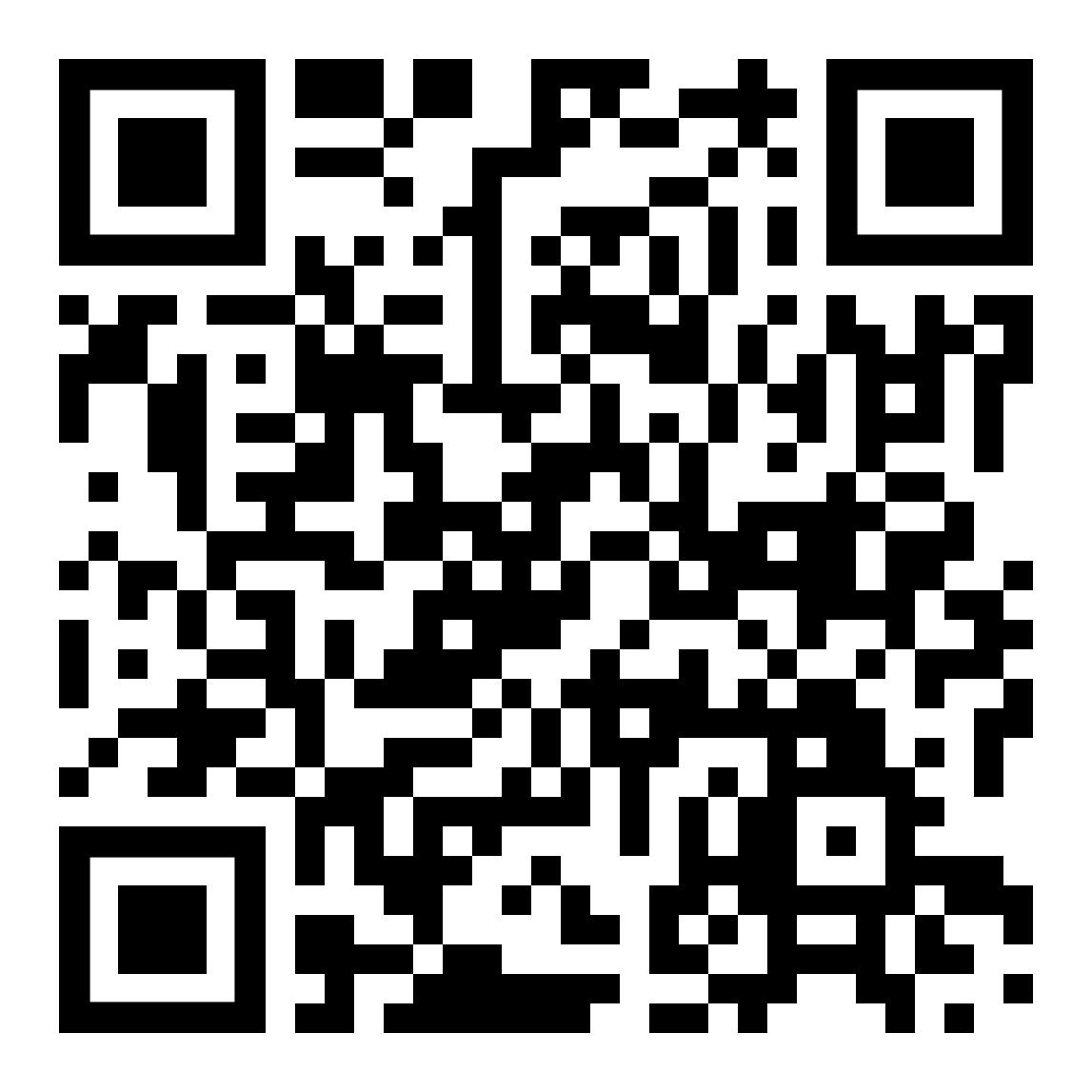


Contact
12 Science Park Drive, Singapore 118225
Web: https://www.dso.org.sg/
Email: campusrelations@dso.org.sg
Social Media


@DSO National Laboratories
@discoverdso
@DSO National Laboratories
Number of employees
1,000 – 10,000 employees
Minimum requirement
Degree Diploma
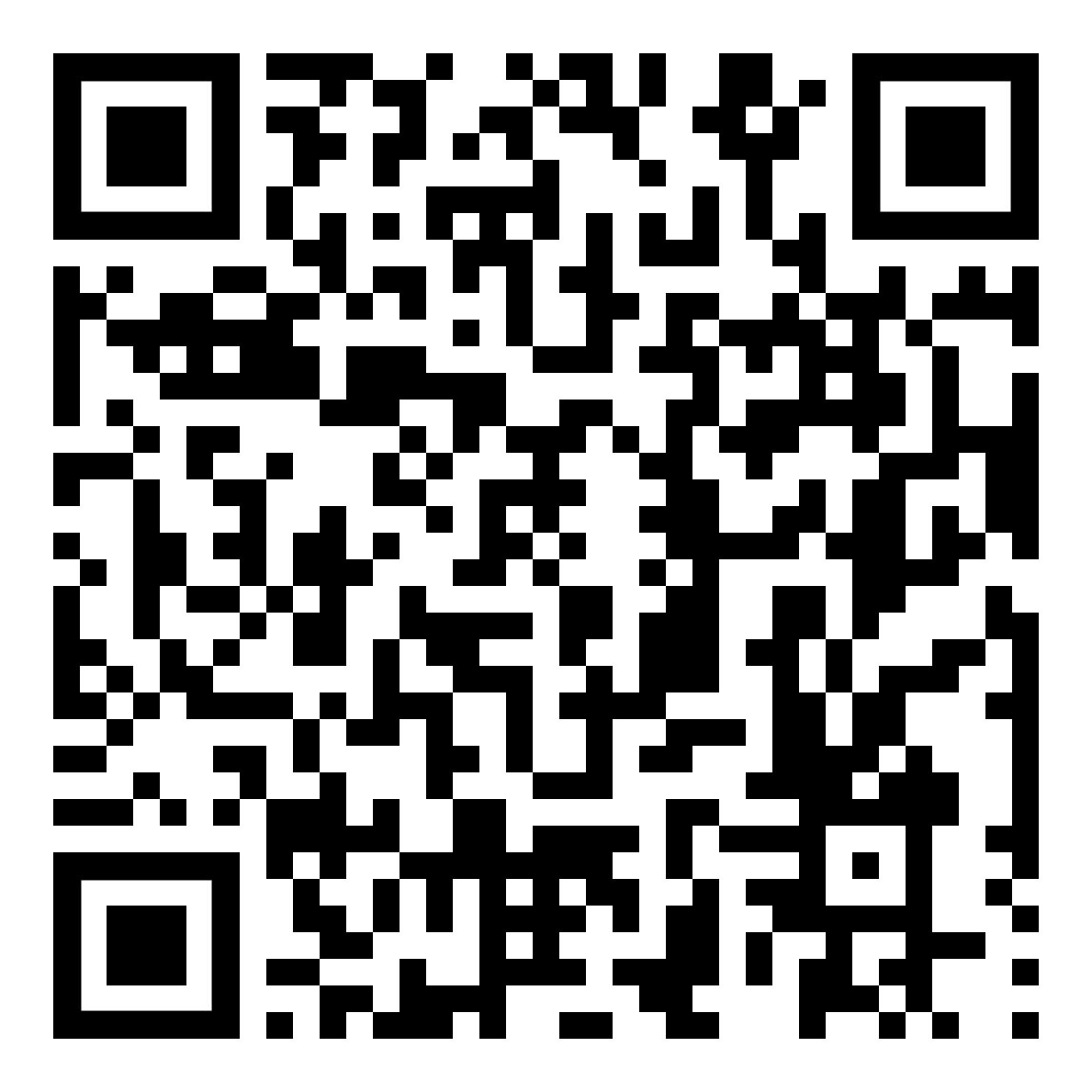
More about us
BDO Singapore is a full-service professional tax, accounting, and business advisory firm, deeply rooted in serving small and mediumsized enterprises (SMEs), large privately held businesses, and multinational corporations across diverse industries in Singapore. Our clientele spans various sectors including consumer and retail, financial services, education, F&B, manufacturing, real estate and construction, logistics, healthcare, public sector, professional services, transport, and technology, media, and telecommunications.
BDO Singapore is an independent member firm of BDO International, the fifth-largest professional services organisation in the world. Established in 1972, we have evolved into one of Singapore’s leading and highly respected accounting and business advisory firms, with over 600 employees. We offer an extensive and comprehensive suite of professional services encompassing audit, accounting, tax, business advisory and business services outsourcing.
As a forward-thinking, digital-focused firm that sees digital as a cornerstone of excellence, we are proud of our partners and directors who consistently earn the trust of our clients and the market by delivering ideas that create value. We take pride in our dedicated team for their pivotal role in helping our clients grow, flourish, and transform. We cultivate a culture that transcends office boundaries, fostering collaboration and community engagement both within and beyond our workplace.
More about us
DSO National Laboratories is Singapore’s largest defence research and development organisation with the critical mission of developing technological surprises to sharpen the cutting edge of Singapore’s defence capabilities. Established in 1972, DSO has more than 1,600 defence engineers and scientists today pushing the boundaries of science and technology and transforming ideas into reality across the domains of air, land, sea, space, and cyberspace. Career or internship, this is where you can make a real impact and shape the future of defence.
TAILORED, NOT TYPICAL.
We want to ensure every intern gets the most out of their internship. Every DSO Internship is specifically designed for the individual, tailored to your skills and learning requirements, so you get an enriching internship experience.
MEANINGFUL, NOT MENIAL.
Not only will you be learning from the best mentors in their respective fields, you’ll also be applying your newly-acquired knowledge on actual projects and make a real difference in the world!
JOB OFFER, NOT JOB REFERENCE.
Internship Positions – Audit & Assurance, Tax Advisory, Accounting, Management Consulting, Corporate Advisory, Restructuring & Forensics, Risk Advisory
Application Period(s)
Application open date: All year-round
Application deadline: N/A
Duration of internship: Open
Internship description
Job Roles
• Accounting
• Business Administration
• Finance
Internship requirements
• Advisory
• Taxation
• Consultancy
Degree/Diploma in Accountancy, Business Management, Financial Management or other relevant disciplines.
Internship application link/email
career@bdo.com.sg
Sector(s)
• Accountancy and Financial Management
• Consulting
• Scientific Research and Development Find
We acknowledge the talent our DSO interns possess. That is why so many of our current staff are former interns, and we remain committed to tendering more job offers moving forward. At DSO, today an intern, tomorrow an employee.
DSO Internship Programme
Application Period(s)
Application open date: All year-round
Duration of internship: 10 weeks or more
Internship description
As a DSO Intern, you will be part of the action and get a chance to make your mark on a real defence R&D project. We want to ensure every DSO intern gets the most of their internship with us. Projects are matched to interns taking into account their technical skills and passion.
Internship requirements
If you are a Singapore citizen and pursuing studies in any of the following disciplines:
Aerospace Engineering, Computer Engineering, Computer Science, Electrical and Electronics Engineering, Engineering Science, Engineering Product Development, Information Security, Information Systems Technology and Design, Mathematics, Mechanical Engineering or Physics
Internship application link/email
Universities’ and Polytechnics’ internship portal Sector(s)
• Engineering, Design and Manufacturing
• IT and Technology
72 Internship Guide 2024 Listing Find out more at
more at
out

Peh Yu Yun
JOB: Robotics for Satellites Intern, Space Systems Engineer
EMPLOYER: DSO National Laboratories
QUALIFICATIONS:
Yu Yun received her Bachelor in Electrical and Electronic Engineering from Nanyang Technological University in 2023
“I am thankful that I can tap on the expertise of numerous subject matter experts in my team, especially since my background is not in mechanical engineering, and get valuable insights on the feasibility of my design and improvements that I can make.”
A Day in the Life
7:00 AM
I like to get up early to beat the morning crowd, so that I can sit guilt-free on the train and catch up on my Netflix shows during the commute to work. Before heading to my desk to begin my day, I will usually grab a quick bite from DSO’s staff canteen, which serves affordable and tasty breakfast options.
8:30 AM
The day begins with me checking my email to make sure I am caught up on important matters, and then reading up on subjects that I am not as familiar with, such as orbital mechanics and orbital manoeuvres, and I enjoy learning about these! To keep track of my progress and understanding, I document everything I learn in a notebook, which proved helpful whenever I needed to refer to one of my readings.
12:00 PM
For lunch, I usually eat with my fellow interns, either at the staff canteen, at the nearby Kent Ridge MRT, or sometimes even at NUS canteens when we have the time! It is always exciting to hear about their projects and to have fresh perspectives when I am stuck on something.
2:00 PM
Usually in the afternoons, I spend my time in the “Playground”! The Playground is a well-equipped makerspace that houses all the prototyping equipment that I need for my internship project, such as 3D printers, drills, soldering stations. At DSO, every intern is assigned a meaningful project to work on, and mine is a multifaceted project that involves manoeuvring a satellite in space, as well as designing and prototyping the deployment mechanisms. As part of the prototyping process, I use the 3D printers at the Playground to print the deployment components and test them out. My project also requires me to perform calculations and do “online shopping” to find suitable motors, and subsequently design a housing for the motors based on their dimensions, write code to control the motors, and power everything up.
6:00 PM
Before ending the day, I will check in with my supervisors to update them on any progress I’ve made or seek their advice regarding any roadblocks I may have. They are always very willing to share their knowledge and ideas to guide me along!
Intern Profile 73
Internship Guide 2024
Contact
1 Sherwood Road, Singapore 248163
Tel: (+65) 6379 8000
Web: www.mfa.gov.sg/career
Email: mfa_career@mfa.gov.sg
Social Media


@SingaporeMFA @mfa_sg
@Ministry of Foreign Affairs
@MFAsg
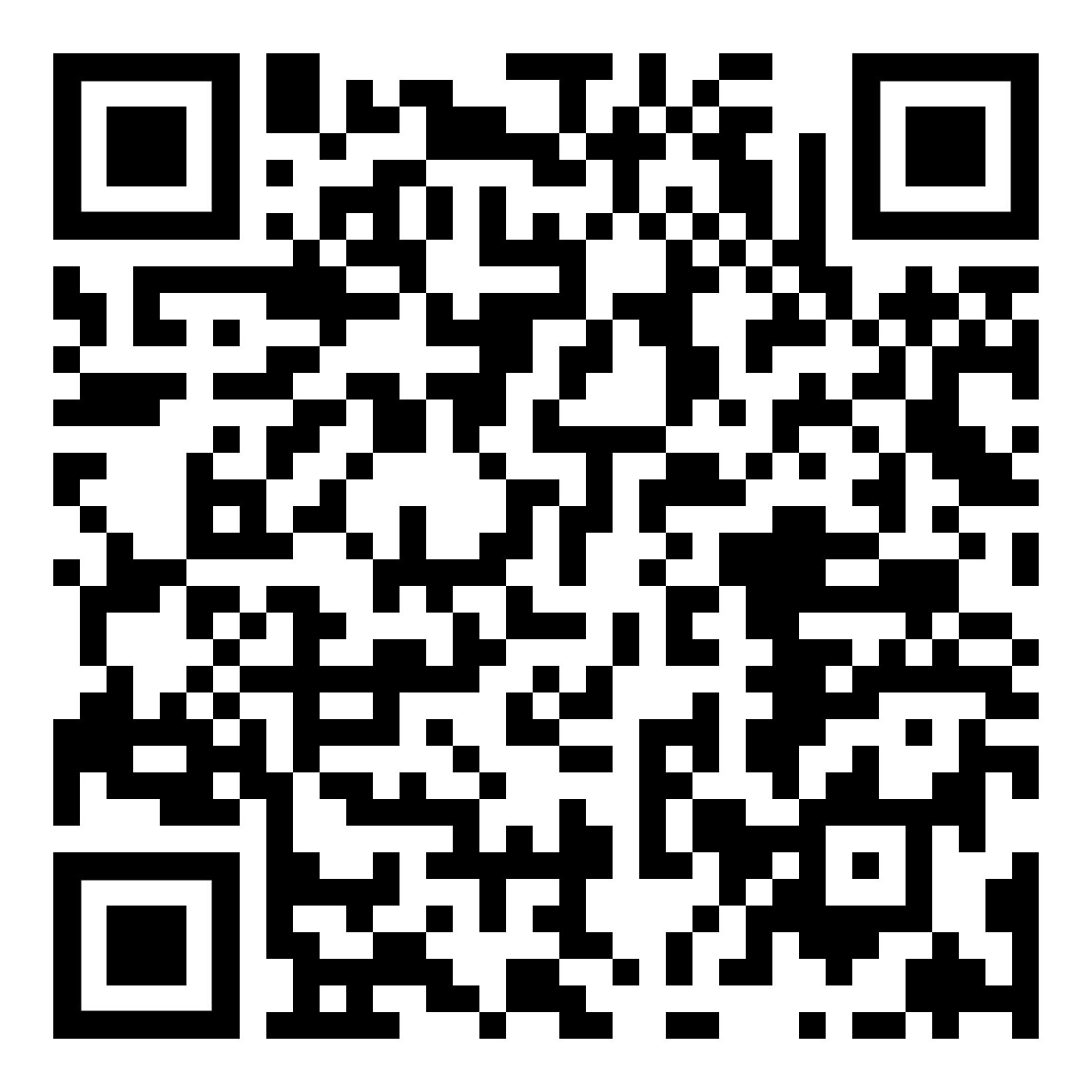
Contact
65 Airport Boulevard Changi Airport Terminal 3, #B1-28 Singapore 819663
Web: https://www.flyscoot.com/en/hr/jobs-home
Social Media

@thescootlife
@thescootlife
@Scoot

@GotScootitude
Number of employees
1,000 – 10,000 employees
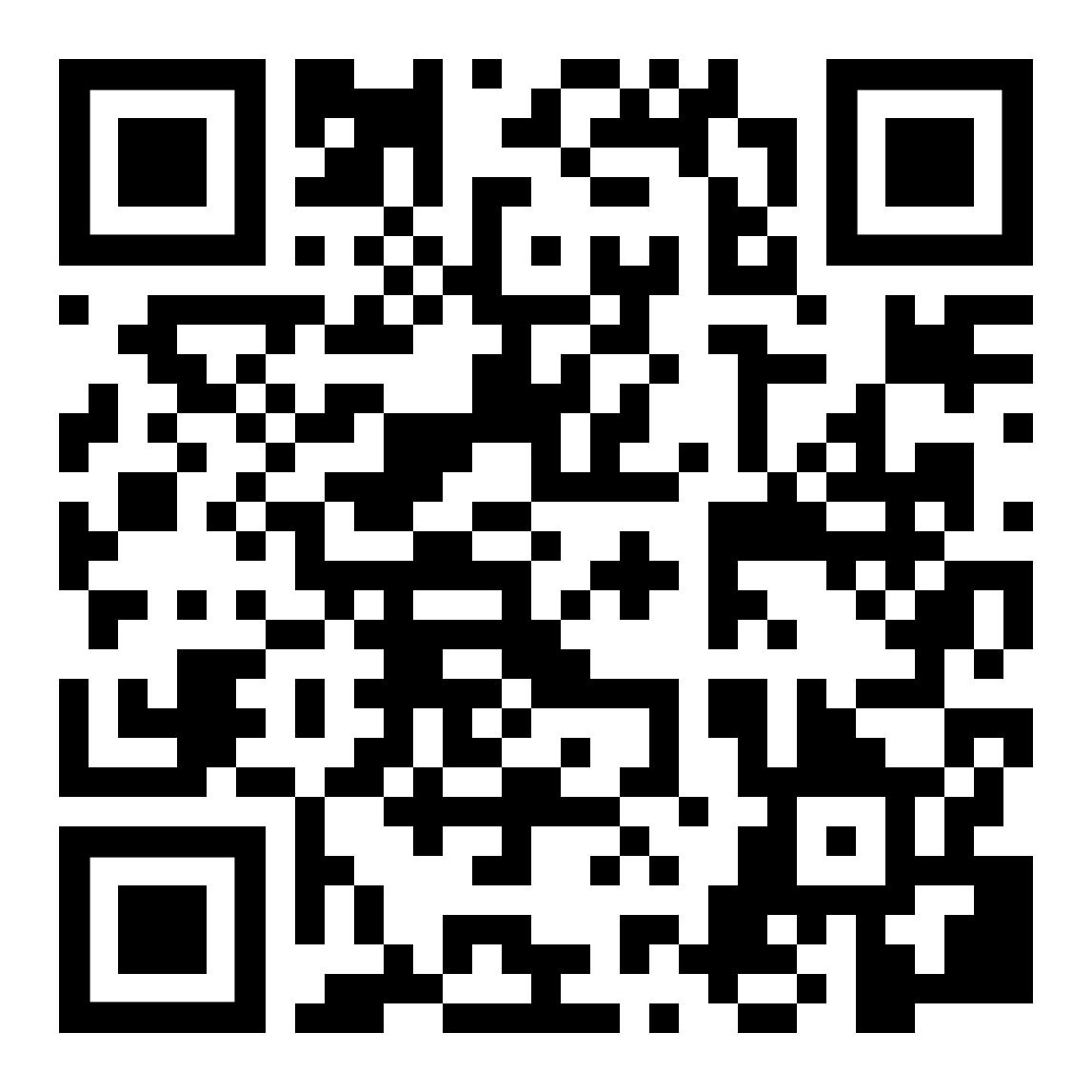
More about us
A Foreign Service career is more than just a job. Foreign Service Officers (FSOs) will need a good grasp of world affairs and a firm understanding of Singapore’s position.
Responsibilities include formulating, reviewing, and implementing policies related to your assigned portfolio. You must be versatile, able to analyse issues critically, strategise and achieve outcomes. You need to be persuasive and assertive, able to cultivate good interpersonal relations while keeping Singapore’s interests at heart.
With over 50 overseas missions worldwide, MFA offers unique opportunities and rewards. Throughout your career, you will alternate between Singapore (HQ) and our overseas missions.
MFA’s Undergraduate Internship Programme provides insight into life as an FSO, either on the Functional and Corporate track or the Political and Economic track. During your 4-week internship, you can look forward to:
• Dialogue sessions with senior diplomats and management
• Meetings, conferences and seminars on foreign policy issues
• Research assignments
• Directorate or Mission-specific projects and events
Find out more about our Internship Programme below:
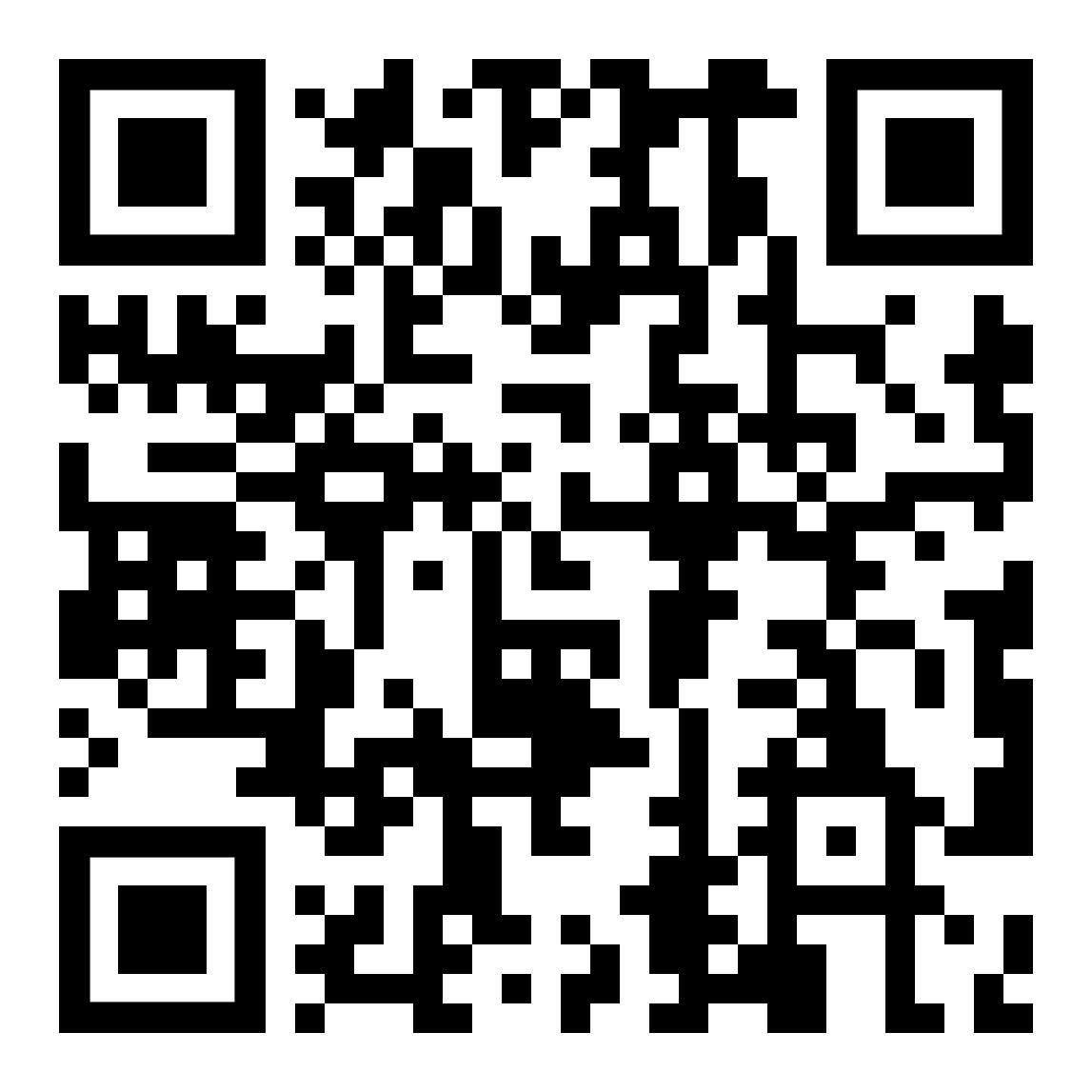
INTERNSHIP APPLICATION
Apply online at Careers@Gov.
Applications open in the third quarter of the year. Visit our website for more details.
INTERNSHIP REQUIREMENTS
You are eligible to apply if you meet the following criteria:
• You are a promising student pursuing an undergraduate degree who is keen to consider employment with MFA
• You are a Singapore citizen
Please note that priority will be given to applicants in their penultimate year of study.
Sector(s)
• Public Sector
Find out more at
More about us
Scoot is the low-cost subsidiary of Singapore Airlines (SIA). Scoot took to the skies in June 2012 and merged with Tigerair Singapore in July 2017, retaining the Scoot brand for a new chapter of growth.
We are not your typical low-cost carrier (LCC). In 2023, Scoot was recognised as one of Singapore’s best employers by The Straits Times. Our people have big smiles and even bigger personalities, defined by our unique Scootitude – a passion for travel, connecting people and cultures, and pushing boundaries, which drives us to continually innovate, strive for improvement and seek new opportunities.
Think you’ve got that Scootitude? Let your career take flight with us by applying here: https://linktr.ee/scootrecruitment
INTERNSHIP ROLES
Refer to https://bit.ly/3vIgLZv
Sector(s)
• Aviation, Transport and Supply Chain
• Hospitality, Leisure and Tourism
• IT and Technology
74 Internship Guide 2024 Listing
out more at
Find
ESCAPE THE ORDINARY!
9V-TRM

Shannon Effendi
JOB:
Intern, User Interface/User Experience Design
EMPLOYER: Scoot Pte Ltd
QUALIFICATIONS:
Shannon received her Bachelor of Social Sciences in Communications and New Media from the National University of Singapore in 2024
“I enjoy these interactions because I feel empowered to ask questions, share ideas and contribute meaningfully even as an intern.”
A Day in the Life
8:00 AM
I usually start off my day by grabbing a pastry before commuting to work and listening to music during my bus ride. Scoot has a hybrid working arrangement, so I spent less time commuting!
9:00 AM
Upon reaching the office, I look through my emails to note the meetings I have for the day. This helps me to sort out my priorities on the tasks that need to be completed. As a User Interface/ User Experience (UI/UX) intern, my work centers around improving the visual design of Scoot’s website and mobile application to ensure that users have an enjoyable and smooth-sailing experience.
I spend most of my time doing research on web and mobile design, supporting the team with this information to improve our own designs. I will also conduct user interviews to better understand user’s specific pain points while using our platforms to avoid forming any assumptions.
12:00 PM
When lunch time comes, I usually eat with my UX team. As our office is located at Changi Airport, we have many dining options at discounted rates. These meals are a good opportunity for my team to get to know one another better and understand each other’s roles.
As Scoot has many different digital platforms, to ensure quicker development and faster delivery of our products and services to customers, we work in cross-functional agile squads where team members from different disciplines work together closely. I enjoy interacting with my teammates as I can gain new perspectives and pick up valuable knowledge beyond my internship role.
2:00 PM
It’s time to get into discussions after lunch! We will usually share our research findings or get together for practical workshops where we will ideate, create, and critique the design wireframes that we collectively came up with. I enjoy these interactions because I feel empowered to ask questions, share ideas and contribute meaningfully even as an intern.
6:00 PM
At the end of the day, I will create a to-do list for tomorrow and take note of the scheduled meetings to help me hit the ground running the next day. Then, I will go home to have dinner with my family and catch up on dramas to unwind and relax.
Internship Guide 2024 Intern Profile 76


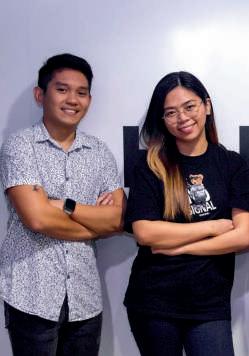





to join our yellow fam today! SCAN HERE
E190-E2 Got Scootitude? Scoot thescootlife thescootlife Check out our opportunities!
https://linktr.ee/scootrecruitment




Contact
2 Kallang Sector Singapore 349277
Web: https://www.spgroup.com.sg
Email: internship@spgroup.com.sg
Social Media


@SP Group @spgroup.sg
@SP Group
Number of employees
Minimum requirement
Degree Diploma
More about us
Curious how we maintain top-notch grid performance while innovating for a greener world?
As a leading utilities group in Asia Pacific, we empower businesses, households and individuals with low-carbon and smart energy solutions beyond traditional utilities services. We own and operate electricity and gas networks in Singapore and Australia and sustainable energy solutions in China, Vietnam and Thailand.
From renewing switchgears to building engineering and digital capabilities, you will play an integral role in keeping our nation’s grid resilient and developing the energy grid of the future.
We are looking for young talents with the passion and agility to strive for high quality performance for our stakeholders. Fresh graduates will embark on a structured graduate programme with hands-on roles, support for professional certifications and training to equip you for future leadership positions.
Come and be part of a dedicated team that upholds Singapore’s world-class network, maintains reliability, and drives sustainable energy solutions for our customers.
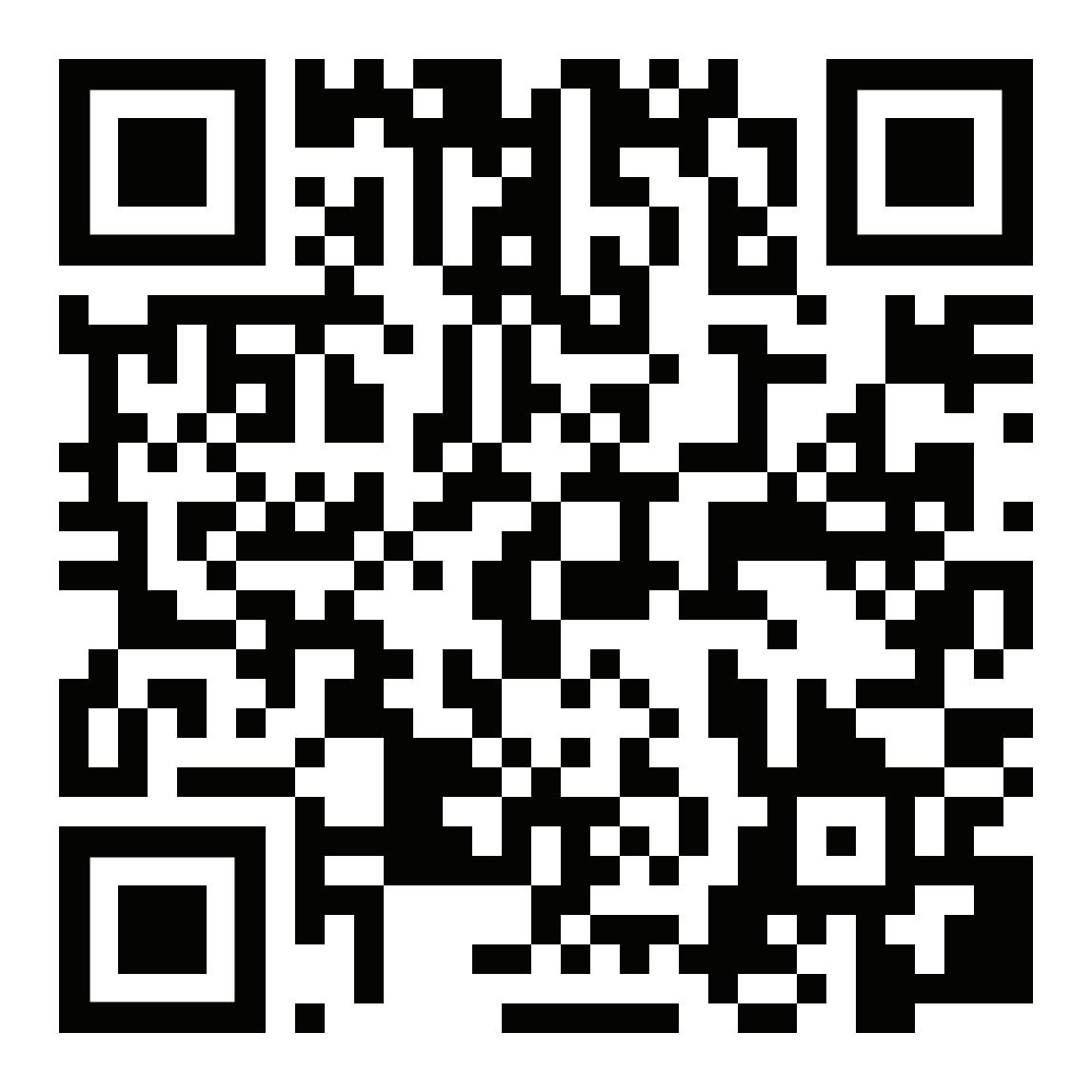
SP Group Internships – Multi-disciplinary
• Engineering
• Computing & IT
• Business & Corporate Functions
Application Period(s)
Application open date: All year-round
Duration of internship:
For University
• January – June
• May – August
• July – December
For Polytechnic
• September – Feb
• March – August
Internship description
Please email us to inquire about the available positions.
Internship requirements
Please email us to inquire about the available positions.
Internship application link/email internship@spgroup.com.sg
Sector(s)
• Energy, Oil and Gas, and Utilities




























78 Internship Guide 2024 Listing
out more at
Find
1,000 – 10,000 employees
Brought to you by Singapore's 100 Leading Graduate Employers 2023 media HOTTEST EMPLOYERS OF DISCOVER THE HOTTEST EMPLOYERS OF DISCOVER THE 2023 Find out more at singapores100.com












































































Flicking from the Back
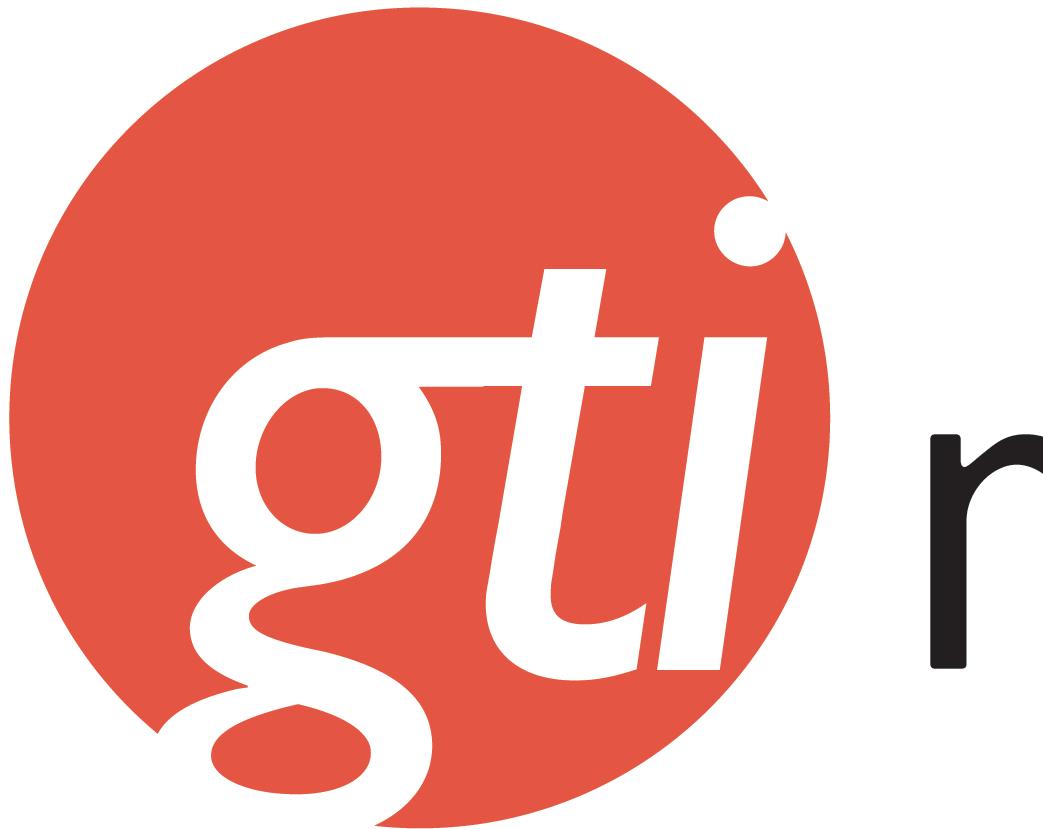

GTI Media is the world’s largest careers and graduate recruitment publisher. Founded in the UK in 1988, GTI publishes and distributes more than 100 careers and recruitment products around the globe. GTI Media Singapore would like to thank everyone who has contributed to the 2024 issue of gradsingapore’s Internship Career Guide!
Internship Guide 2024 80 Getting Started Aiming for an Internship Applying for Internships 4 9 25 Acing Your Internship Industry Sectors Employer Listings 41 60 71 © GTI Asia Pte Ltd, April 2024 All rights reserved. No part of this publication may be reproduced
any
not
to, photocopying or storage in a retrieval system in any form without prior written
of
the
authors and their publication, and do not
has
in the compilation of this publication, the publishers
arising from such inaccuracies, or for any loss, direct or
in
information in this
Chief
Elliyani
& Editorial Dawn Yip, Brendan Yee Design & Production A’liah Abdul Rahim, Allysha
Harfaz Advertising Ron Ong, Shenna Mae, The GTI Media sales team Marketing & Distribution Kelly Chin, Jenna Lau, Eileen Ang Publisher Isaac Hee Printer Times Printer Pte Ltd 16 Tuas Ave 5 Singapore 639340 GTI
Ltd (Company
2 Sims Close #05-07
+
+
by
means including, but
limited
consent
GTI. The views expressed in
articles are those of
necessarily imply that such views are shared by GTI. Whilst every care
been taken
cannot accept responsibility for any inaccuracies, or for consequential loss
consequential, arising
connection with
publication.
Editor
Mohamad Ali Editor
Puteri
Asia Pte
number: 200301978M)
Gemini@Sims Singapore 387298 T
(65) 6294 6505 F
(65) 6294 1043









The best graduate jobs, internships & graduate programmes in Singapore.

































your free account now at
Create
Just graduated? We've got you covered.







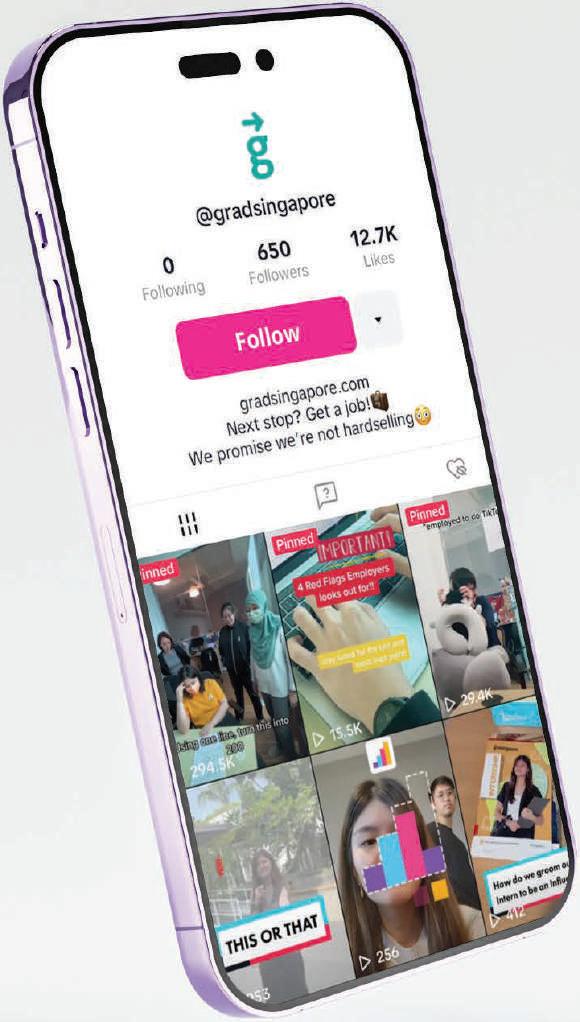
Create your free account now at Follow us for career advice and industry insight to land your dream job. Follow us on TikTok!






















































































































































































































































